The Launch of Tempo Single Brand
We launch Tempo single brand, with news products integrated under one platform. Scores of new services will be offered.
maaf email atau password anda salah
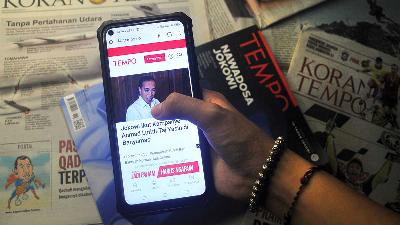
We launch Tempo single brand, with news products integrated under one platform. Scores of new services will be offered.

The Supreme Audit Agency uncovered violations in sugar import practices during various periods of the Trade Ministry. Only Tom Lembong, the Trade Minister for 2015-2016, is indicted.
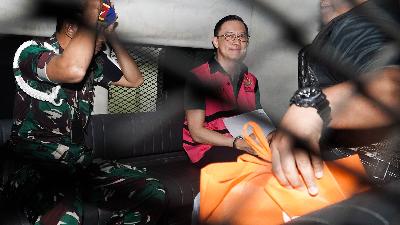
The Attorney General’s Office is still withholding the evidence in the sugar import case involving Tom Lembong. State losses remain unclear.

Ridwan Kamil’s electability remains stagnant in the Jakarta regional head election. His supporting parties are not actively campaigning for him, leaving him hoping for support from Prabowo and Jokowi.

A reader’s letter suggests authorities seek ways for safe and efficient logistics transportation, in order to minimize traffic accidents.
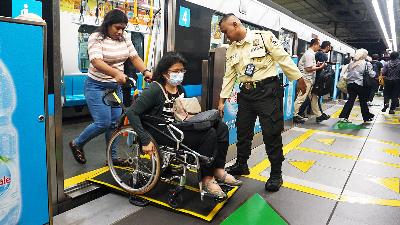
Jakarta is striving to provide inclusive transportation, but challenges remain, from funding issues to construction oversight.
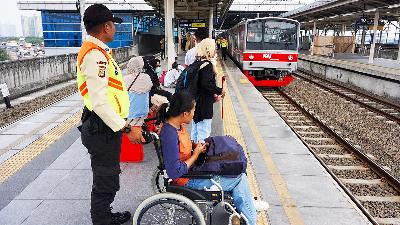
Despite some improvements, much still needs to be done regarding access to public transport for people with disabilities.

The sea sand export policy benefits financial backers close to tycoons. Also, it is a gift for Singapore.
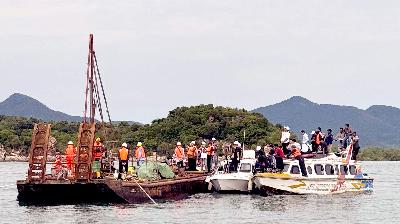
Customs has differing views from the Ministry of Maritime Affairs and Fisheries regarding sea sand export tariffs, aiming for regulations that facilitate ease.

Two ministers of President Joko Widodo have paved the way for the exploitation and export of sea sand. Domestic and export interests are at odds.
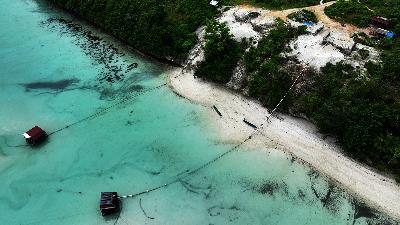
The plan to export sea sand faces obstacles from the Ministry of Energy and Mineral Resources. Oppositions also come from the DPR.
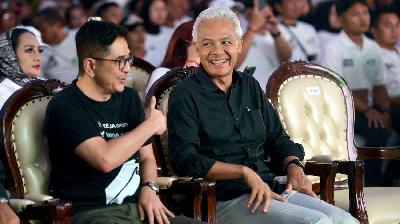
Arsjad Rasyid and Anindya Bakrie both claim support from regional Kadin branches. Legal battles continue.

Why do we still import rice from Vietnam? Is Indonesia not an agricultural country?

The selection of the KPK leadership is being forced through before the end of the terms of the DPR and Jokowi. Watch out for Presidential Palace appointees.

The power wheeling scheme is important to end the monopoly in the supply of electricity. It could accelerate the energy transition.

China’s economic crisis has the potential to spread around the world. It can kill industries and manufactured goods in many countries.

Pope Francis received a warm welcome on his visit to Indonesia. Appearing with simplicity, he brought a mission of inter-faith dialogue.

Persis Solo attracts substantial funding since Kaesang Pangarep acquired its shares. Sponsors tend to be influenced by the prominence of the owner.
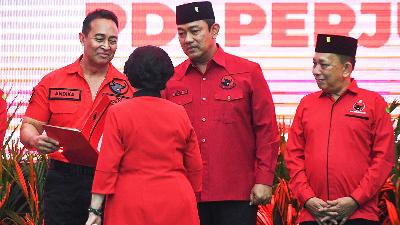
The Indonesian Democratic Party of Struggle (PDIP) strives to counter candidates supported by the Palace. It is an early projection for the 2029 General Elections.
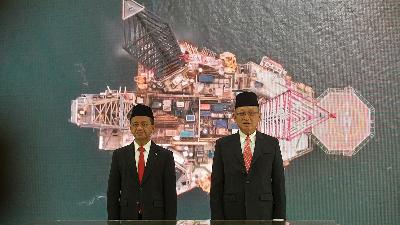
Just months before the end of his term, Jokowi appointed Bahlil Lahadalia as Energy and Mineral Resources Minister. The position is considered prone to conflicts of interest.
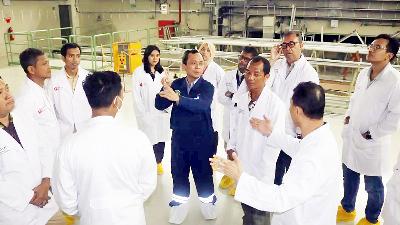
BRIN is designing the Peluit-40 nuclear reactor to replace diesel power plants, claiming it to be safer.

It is natural for someone to want their children, relatives, or close friends to get a position. However, facilitating them to receive that position at the expense of ethics, law, and justice, it may end up in practices of nepotism.
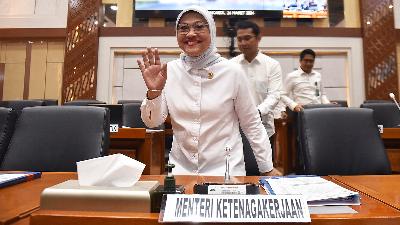
Minister of Manpower Ida Fauziyah explains the issues surrounding the mass layoffs in the industrial sector.
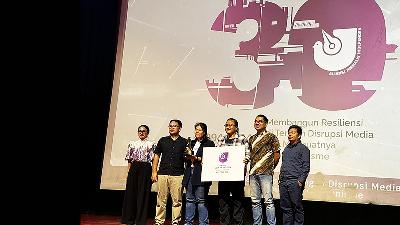
The Bocor Alus Politik podcast receives the Udin Award that we dedicate to our viewers and readers.

The government revives plans to impose taxes on sweetened beverages and other food products. There are also plans to implement a color-coded label as a replacement for the tax.

The response to the Covid-19 pandemic led to a relaxation in regulations and procedures, at the same time as an increase in autocracy. There were plenty of opportunities for corruption.
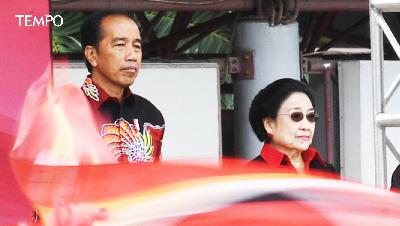
Jokowi’s betrayal of the PDI-P should serve as a lesson: politics is not about seeking power, but trying to bring about democracy.
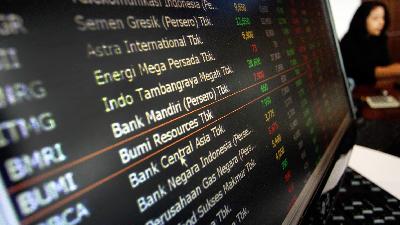
Banks regularly give credit to coal exporters who have deposits from foreign exchange proceeds of exports. It is prone to moral hazards.
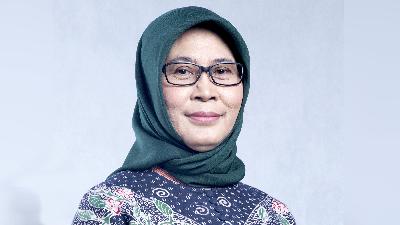
The BPOM does not approve the use of sodium dehydroacetate as a food ingredient. Emma Setyawati, acting Deputy for the Supervision of Processed Foods at BPOM explains.

Right of replies of universities and assessors on the investigative report on the professorship scandal.

Mass layoffs hit the textile industry. The latest import regulation triggered a flood of textile imports, causing the local industry to collapse.
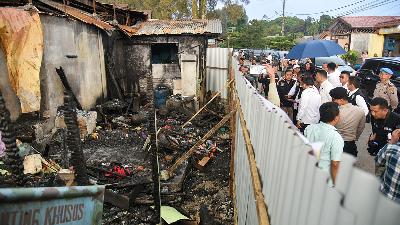
The house of a Tribrata TV journalist in Karo Regency was burned down after he made a report on a gambling case. The victim’s child claimed to have been intimidated by the police.

A new regulation concerning the purchase of aircraft components gives rise to a new problem for airlines. The TKDN policy is being wrongly applied.

Infinite Earth responds regarding the revocation of Rimba Raya Conservation’s ecosystem restoration permit.

Airlines are suffocating from the high costs of maintenance and operations. The consequence of regulatory bans and restrictions on aircraft components.
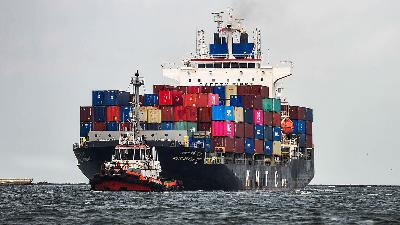
The complicated import regulations is causing congestion at ports. The constantly changing rules do not solve the problem.

The slow issuance of import permits is causing the price of garlic to skyrocket. The government is retaining the RIPH requirements for garlic imports.

Syahrul Yasin Limpo is alleged to have taken money from Agriculture Ministry officials. Those paying the money must also be held responsible.
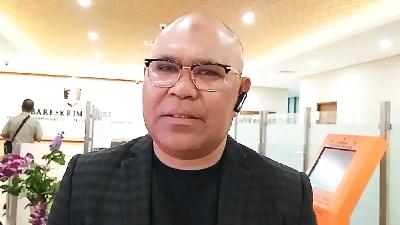
Syahrul Yasin Limpo denied ordering his subordinates to collect tributes. The money was used for the personal interests of his wife and children.
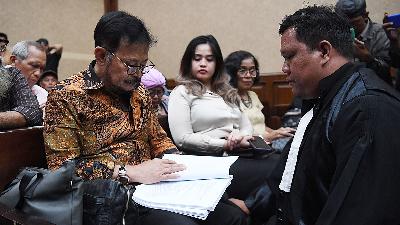
Agriculture Ministry high-ranking officials routinely took up collections to raise money for Syahrul Yasin Limpo from 2020 to 2023. They often used the treasurer’s cash account.

Democracy requires opposition so that government policies can be kept in check.

Political parties that supported the Prabowo-Gibran presidential ticket plan to form a permanent coalition for the 2024 regional head elections. They are strengthening themselves in the provinces.

Indonesia was one of the biggest importers of electronic wiretapping equipment from 2019-2021. This equipment is being used by various state agencies.

The Tempo app experiences occasional glitches as it is currently in the process of migrating to a single brand. Hopefully, it continues to deliver appealing and essential content.

The restrictions on the imports of goods caused problems for many industries. They could become an opportunity for bribery and corruption.
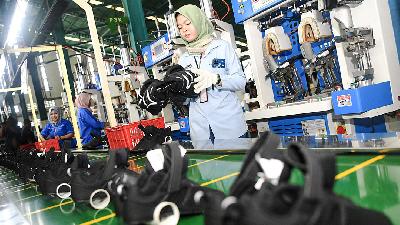
The government repeatedly changes the regulations for importing goods. Special provisions are made only when public protests occur.
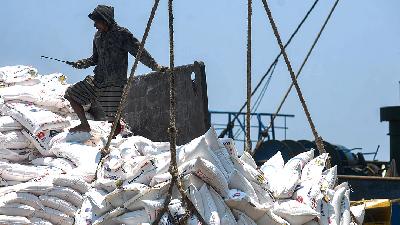
Import restrictions make it difficult for flour producers to obtain raw ingredients. Regulatory bans and restrictions threaten many industries.
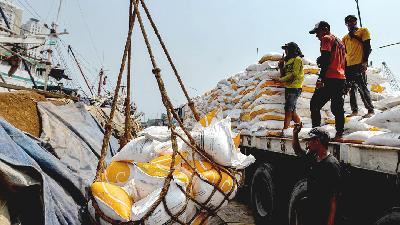
The import quantities of several products declined over the last few months. Trade surplus is not always favorable.

A suggestion that readers can access Tempo digital by subscribing it on daily basis.
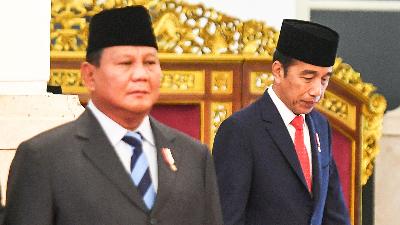
Prabowo Subianto already started to design the composition of his cabinet. There is a possibility that the number of ministers in Prabowo’s cabinet will increase.
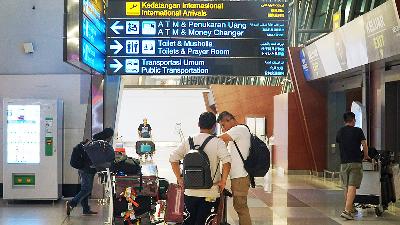
The Trade Ministry is re-evaluating the regulation on imported goods restrictions, which triggers concerns for travelers and threatens business supply chains.
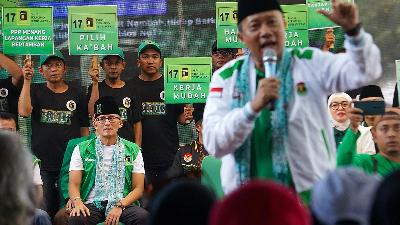
Various instances of fraud in the 2024 General Elections meet the conditions for the House to use its right of inquiry. PSI’s surge in votes is in the spotlight.

Tempo editions need to be disseminated to improve our society’s political literacy, stated a reader.

The government, once again, is applying a policy of import quotas. This will lead to collusion and bribery.
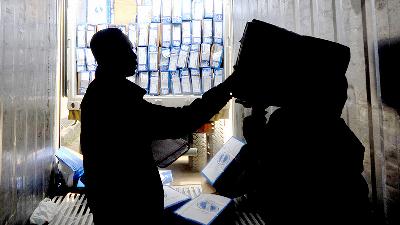
The government modified beef import regulations several times. Some led to instances of bribery and corruption.
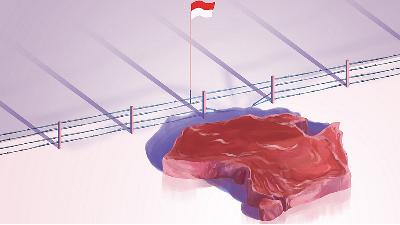
Problems in meat imports indicate the return to the quota regime. Permits are issued late, and the volume allocated is only one-third of what is asked.
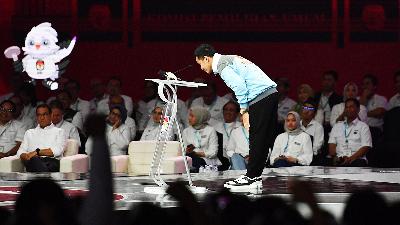
The police and a number of government ministries are working for a Prabowo-Gibran election victory. Some are using state funds for this purpose.
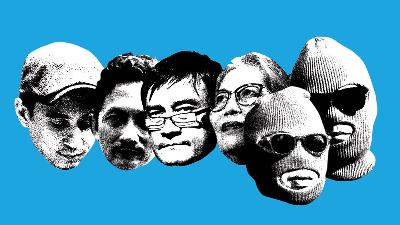
Tempo again selected the works of artists, choreographers, playwrights, musicians and writers in the 2023 Tempo’s Selection for Works of Art and Literature.

The Trade Minister issues new regulations that ease restrictions on importing batik fabric products. This endangers the future of the traditional batik industry in Indonesia.
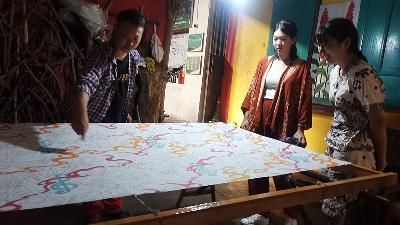
Batik production centers are in a post-pandemic recovery period. But their efforts to rebound are threatened by the invasion of cheaper imported batik.

A new regulation expands the opportunities for batik imports by easing the import mechanisms, citing the needs of state institutions.

Tempo’s Film Selection of 2023 created seven categories for the selected films.
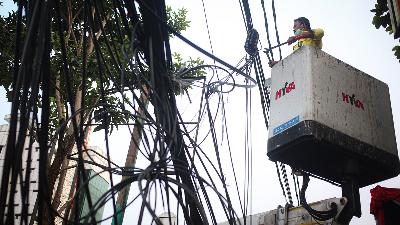
The Jakarta government is carrying out an operation to control the cables cluttering the street. The responsibility for this issue lies in the hands of the local governments.
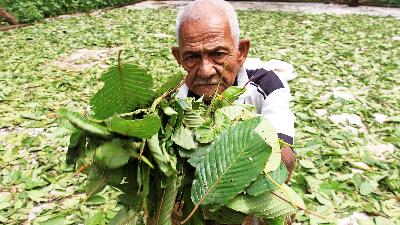
The National Narcotics Agency proposes to include herbal leaf kratom on the narcotics list. The native Kalimantan plant has multiple medicinal properties and high economic value.
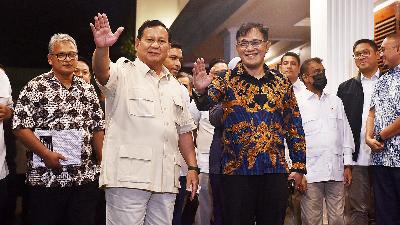
Budiman Sudjatmiko and other 1998 activists are gathering support for Prabowo Subianto-Gibran Rakabuming Raka. They are deemed pragmatic and accused of forgetting history.
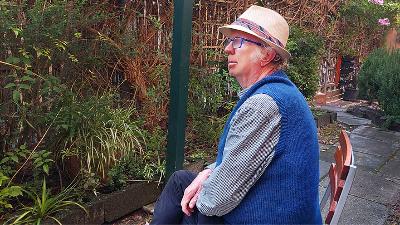
Max Lane’s thoughts on activists of the 90s, including those who have closed ranks around Prabowo Subianto, and the absence of opposition in Indonesia.

PPATK has exposed irregular transactions amounting to trillions of rupiah for campaigning. Loopholes in campaign financing regulations are being exploited.

For the sake of humanity, the Indonesian government must not be hypocritical or wash its hands of the Rohingya refugees.
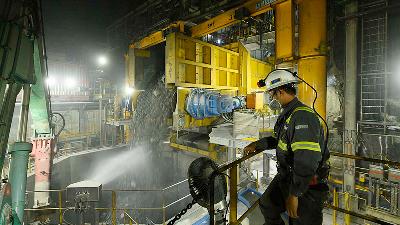
Freeport objects to the copper export duty. It is considered as failing to comply with the previous agreement.
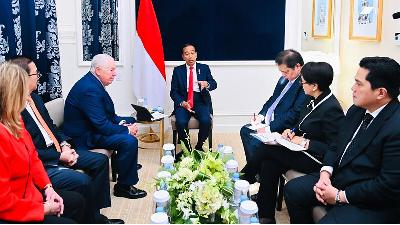
The government is revising the requirement for Freeport’s contract extension. The mining company is mandated to build a smelter in Papua and divest its shares.

The State Audit Agency discovers problems in Freeport Indonesia’s smelter project. The company manages to avoid paying late fines.
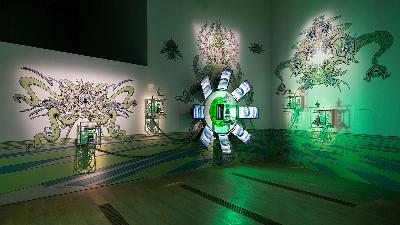
Asian women artists exhibit their art works at the ArtScience Museum in Singapore. New Eden, Science Fiction Mythologies Transformed shows the intersectionality of science fiction and Asian philosophies through the creative praxis.
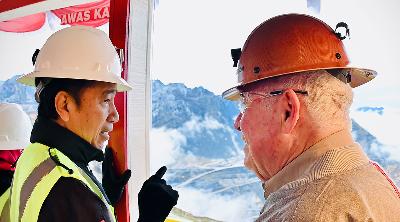
President Jokowi wants to extend the Freeport contract period, which will not end until 2041. This is not an appropriate move at the end of his term.
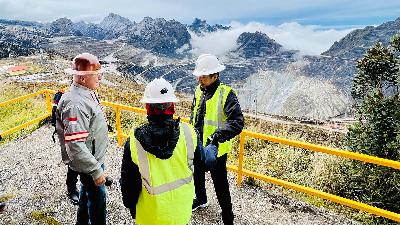
Freeport aims for an increase in dividend payments. The addition of shares promises control over operations and benefits for the state.
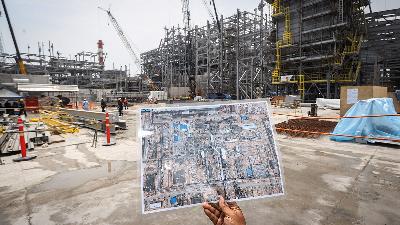
Freeport Indonesia is pressured to finish the smelter project in Gresik. The project is behind schedule despite the company already obtained the export permit for concentrate.

The Indonesian government promises to extend Freeport’s permit if the company releases more shares. A premature extension of the permit would violate regulation.
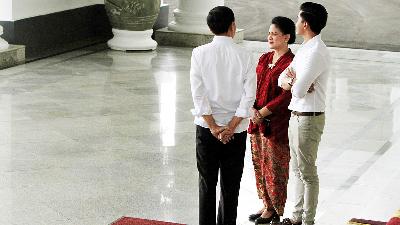
Iriana, the wife of Jokowi, has been advocating for Gibran Rakabuming Raka to become Prabowo’s vice-presidential running mate since the beginning of the year. She is actively garnering support among entrepreneurs.

The political parties supporting Prabowo are continuing to do so despite the nomination of Gibran for vice-presidency is proving problematic. They are simply after power.

Siman Bahar is alleged to have manipulated gold imports and tax documentation. Action must be taken against officials backing him.

Nepotism is the close relative of corruption and dictatorship. The Indonesian Independence Proclamation places nepotism as a threat to independence.
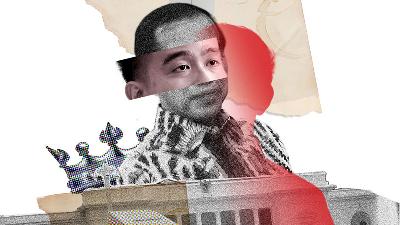
President Jokowi actively supported the Prabowo-Gibran presidential nomination ahead of the Constitutional Court’s decision. A state institution was utilized to support the effort.

Importers complain to the Ombudsman about sluggish garlic permits. There are suspicions of backhanded fees in order to get quotas.
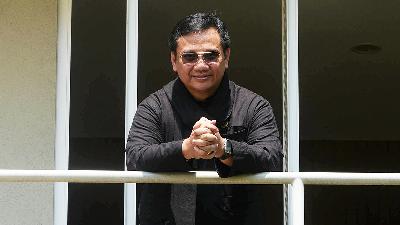
Ombudsman member, Yeka Hendra Fatika, on corruption surrounding garlic imports involving Trade Ministry officials.
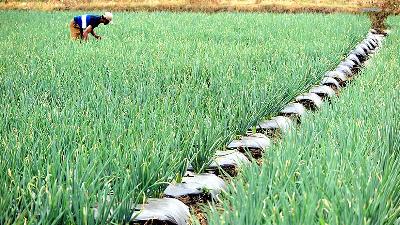
The realization of obligatory garlic cultivation as a provision to obtain the commodity import permits is still stuttering due to incompliant importers and farmers.
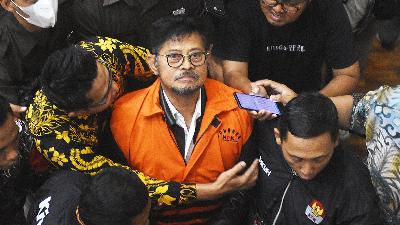
The KPK is investigating the money laundering case against former Agriculture Minister Syahrul Yasin Limpo. Illicit money is suspected to have been channeled through the bank accounts of his daughter and granddaughter.
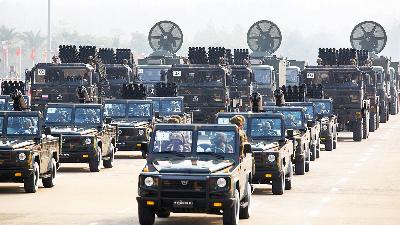
State arms firms are suspected of selling weapons to the Myanmar junta. National Commission on Human Rights is urged to act.
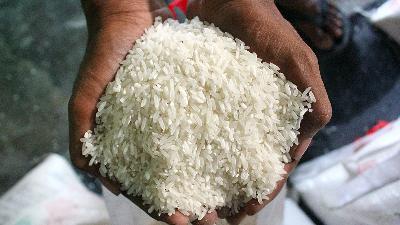
Rice prices continue to skyrocket as crop yields decline. Imported rice is entering the market and distribution methods are being changed.

Prabowo Subianto will almost certainly choose Gibran Rakabuming Raka as his vice-presidential running mate. Jokowi supports a Prabowo-Gibran ticket.
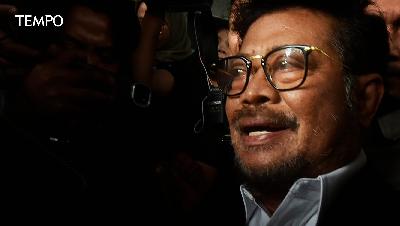
The KPK names Agriculture Minister Syahrul Yasin Limpo a suspect. The case is rife with conflicts of interest and political shenanigans.
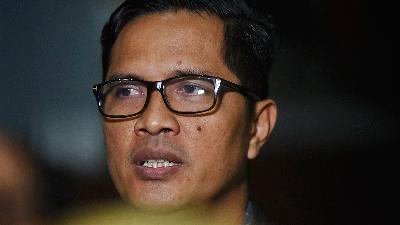
Attorney Febri Diansyah on KPK’s discovery of a legal opinion during the raid on Syahrul Yasin Limpo’s house.
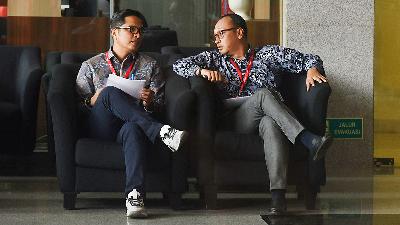
The KPK suspects that the attorneys of Syahrul Yasin Limpo have made a legal analysis on the basis of its investigation report. It is a way of escaping the corruption charge.
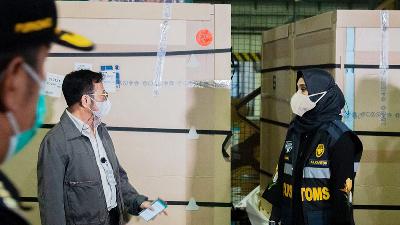
In addition to extortion and gratuities, other criminal cases await Syahrul Yasin Limpo. They are related to fertilizer subsidies and firearm ownership.

The KPK named Syahrul Yasin Limpo a suspect in extortion, gratuities and money laundering. He felt that he was extorted by KPK Chairman Firli Bahuri, who purportedly asked for money to stop the investigation.
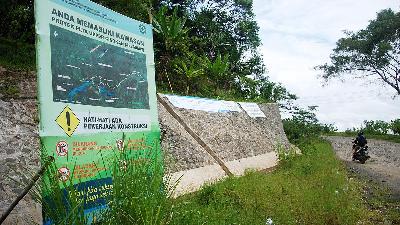
Indonesia’s first pumped storage hydroelectric power plant will generate 1,040 megawatts, the largest capacity in the country.

Presidential candidates’ supporters are creating unfavorable atmosphere in the build-up to the 2024 general elections with them more inclined to speak about rivals’ weaknesses than promoting their champions’ profiles.
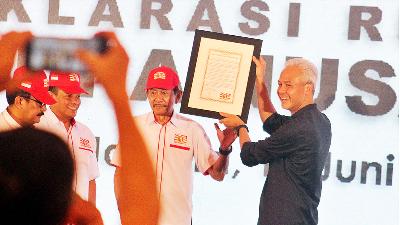
Retired military officers supporting Ganjar Pranowo are striving to raise the popularity of the PDI-P’s presidential candidate. They focus on regions outside Central Java.
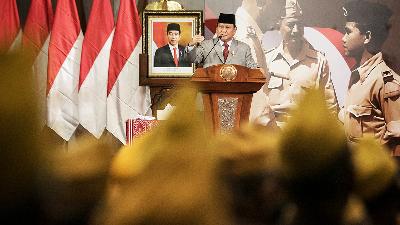
Prabowo Subianto is receiving support from retired military officers who used to be his opponents. They seem to have forgotten serious human rights violations in the past.

Letters on disappointing BCA Life services and Bung Karno’s invocation for spirit of nationalism

The appointment of the Environment Ministry Director-General of Planning appears to have been made based on a forged signature. His track record is also controversial.

The Indonesian government struggles to prevent earnings from exports of natural resources going overseas.

The investigation into the Communication and Digital Affairs Ministry employees backing online gambling is expanded to include many people. Ill-gotten gains from a political operation.
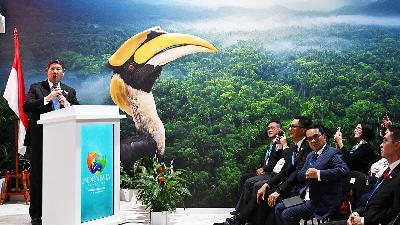
The presence of Hashim Djojohadikusumo at COP29 in Azerbaijan was considered as bearing a conflict of interests. He was promoting the business of Arsari Group.
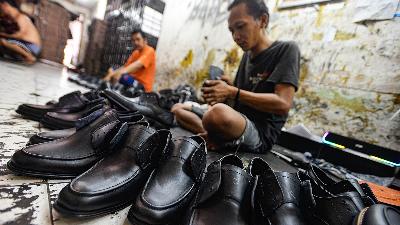
The disbursement of People’s Business Credit faces numerous challenges. Farmers and small business owners are vulnerable to loan sharks and middlemen.
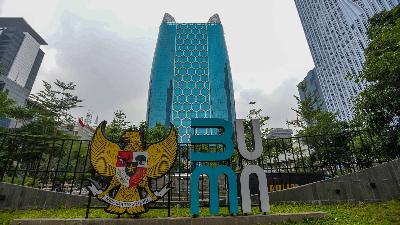
The plan for a super-holding for state-owned enterprises dates back to the New Order era. The SOEs Ministry will be replaced by a giant corporation.
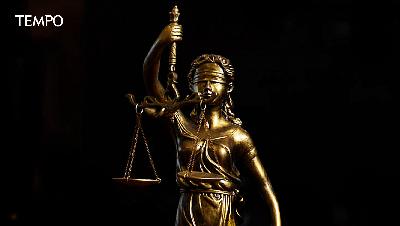
With the Supreme Court’s judicial mafia, when one branch is lopped off, another 10 grow in its place. It needs to be comprehensively cleaned up.

The Supreme Court dismissed three judges suspected of accepting bribes in the Ronald Tannur case. This adversely impacts efforts to improve the judiciary.
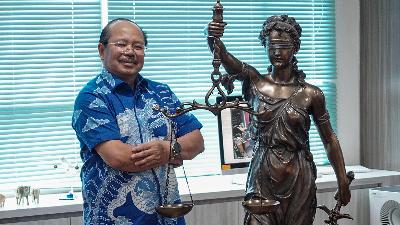
Judicial Commission Chair Amzulian Rifai on the corruption in judicial institution involving judges.

Driven by corporate demand, helicopter business opportunities continue to grow. Operators are increasingly expanding their fleets.

There is an increasingly real threat to Indonesia’s biodiversity. It cannot be overcome through empty slogans at international forums.
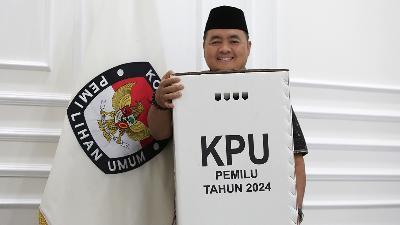
KPU Chair Mochammad Afifuddin on turbulence within his institution following the dismissal of Hasyim Asy’ari, and the Constitutional Court’s decision on the regional head elections.
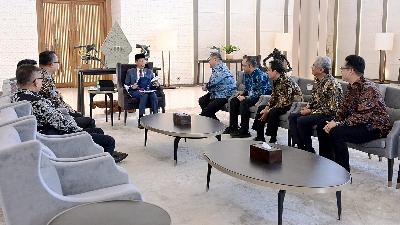
Various parties from the National Police Chief to the State Palace are accused of interfering in the KPK leadership candidates selection process. The candidates are divided into four clusters.
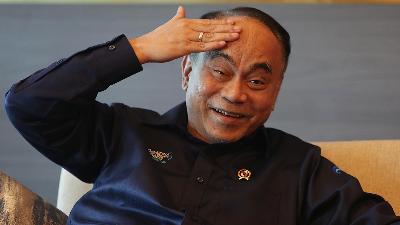
Tempo’s interview with Minister of Communication and Informatics Budi Arie Setiadi about Jokowi’s campaign before the end of his tenure.

As President Jokowi's term neared its end, instructions were given to promote the government's achievements, and billions of rupiah in contracts were offered to the media.
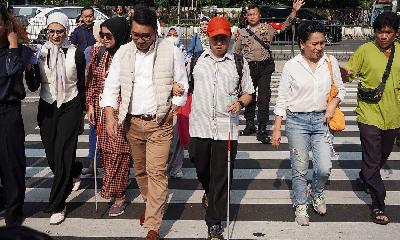
Jakarta governor and deputy governor candidates promise improvements in inclusive public transportation.
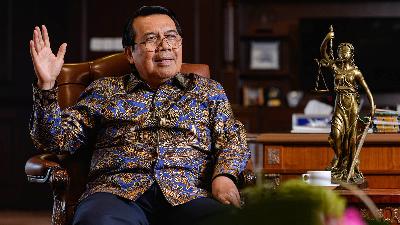
Supreme Court Chief Justice Muhammad Syarifuddin uses artificial intelligence to handle cases. Case brokers continue to be a threat.
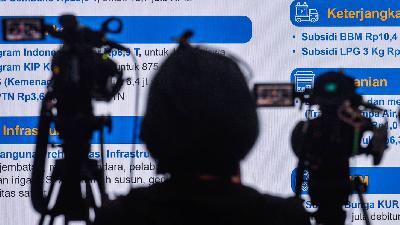
Media companies are experiencing upheaval due to the rapid changes in the business landscape. The industry is moving towards a new equilibrium.

Using a variety of pretexts, the political parties replace elected legislative candidates. This is a betrayal of the people’s choice.
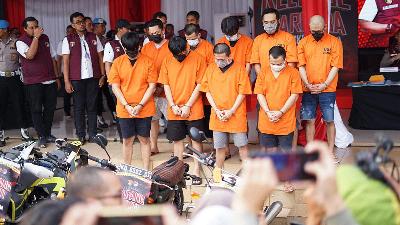
Hendra Sabarudin’s drug network distributed methamphetamine from Tarakan prison starting in 2017, allegedly aided by police and prison guards.

The government plans to dredge 17.6 billion cubic meters of sea sand and sediment, altering the landscape and destroying marine life.
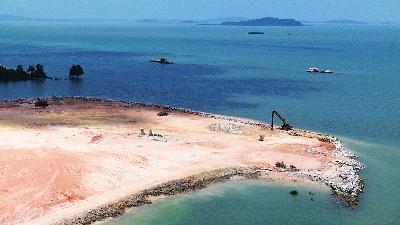
The government designated a number of areas as zones for cleaning sediment and sea sand.

Anindya Bakrie ousts Arsjad Rasjid from the position of General Chair of the Indonesian Chamber of Commerce and Industry (Kadin). The Palace’s support shifted.
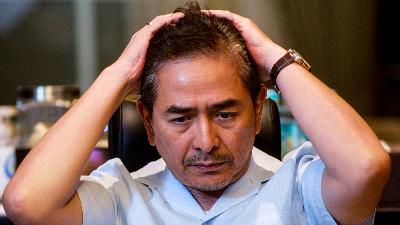
Anindya Bakrie ousted Arsjad Rasjid as the Chair of the Indonesian Chamber of Commerce and Industry (Kadin). The organization is becoming like a political party and enjoys large funds coming in from overseas.
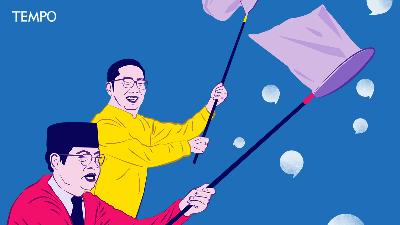
Gubernatorial candidates are trying to win over the votes of Anies Baswedan supporters in the Jakarta regional election. Jokowi reportedly shifted his support.
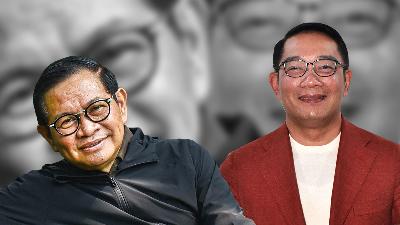
Pramono Anung and Ridwan Kamil shed light on the dynamics surrounding their appointments as Jakarta gubernatorial candidates.
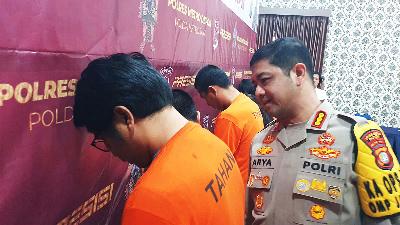
Police uncover baby trafficking syndicate operating in Java-Bali since 2023. Five babies were already sold.
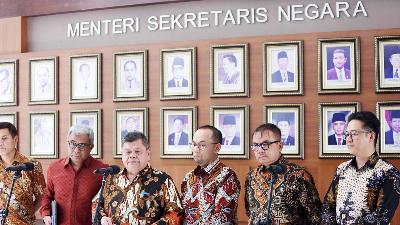
News summary on the conflict of interest of KPK leadership candidates and 44 ministries in Prabowo’s government.
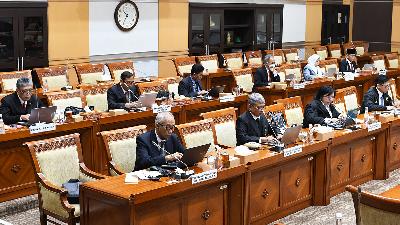
Commission III of the House of Representatives rejected all the Supreme Court judge candidates proposed by the Judicial Commission. The rejection allegedly was due to their favored candidate failed to pass.
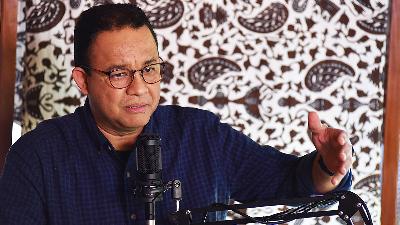
An exclusive Tempo interview with Anies Baswedan regarding his chances to run in the Jakarta regional head election.

Jokowi and Prabowo’s coalition are maneuvering to thwart Anies Baswedan’s candidacy in the Jakarta regional head election. Cabinet posts are being offered as inducements.

Tommy Hermawan Lo’s name emerges following the mention of Mr. T in online gambling that involves human trafficking case. He is a director at a casino management company.
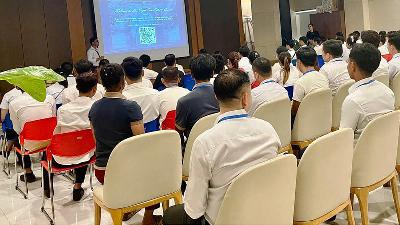
Victims of human trafficking for online gambling and scamming in Cambodia claimed of being forced to work 12-hour shifts and being beaten. Recruitment is still ongoing.
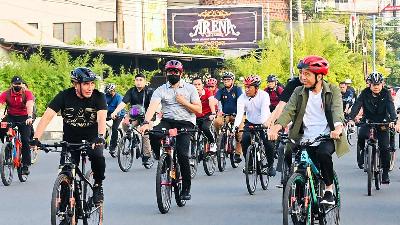
The battle in the presidential election is set to continue in regional head elections. The PDI-P is determined to challenge President Joko Widodo’s candidates.
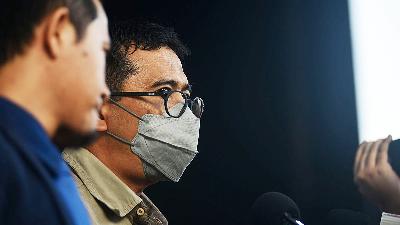
Personal protective equipment corruption suspect, Budi Sylvana, denied inflicting up to Rp300 billion of losses to the state. He revealed the roles of other officials in the case.
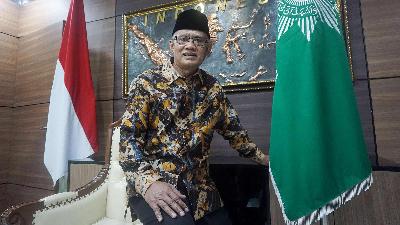
Muhammadiyah follows Nahdlatul Ulama’s step to accept mining concession offer from the government. Muhammadiyah General Chair Haedar Nashir explains about it.
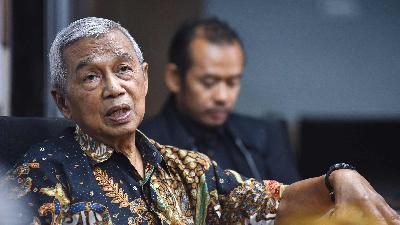
Muhammadiyah accepts the government’s mining concession offer. Many members are against it. Busyro Muqoddas, Chair of Muhammadiyah’s Law and Human Rights Council explains.

Muhammadiyah cadres and administrators are divided in their response to the mining concession. There are whispers from the government and the entrepreneurs.
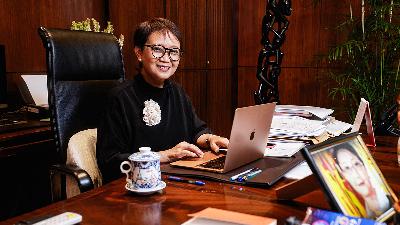
Retno Marsudi dismissed the idea that the government is merely meddling foreign affairs. She emphasized that Indonesia is a trusted partner on the international stage.
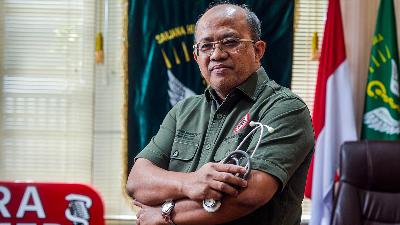
Chair of IDI, Mohammad Adib Khumaidi, discusses the polemic over the plan to allow foreign doctors to practice in Indonesia. He emphasizes stringent regulations are necessary.
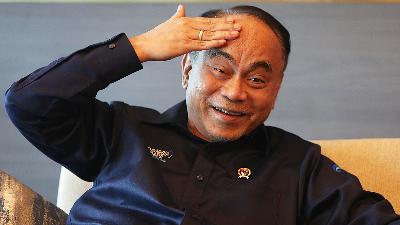
Communication and Informatics Minister Budi Arie explains the cyberattack on the Temporary National Data Center. He dismisses allegations of negligence.

There will be a wave of layoffs at Tokopedia as a result of inefficient practices. This is the result of government policy rife with conflicts of interest.
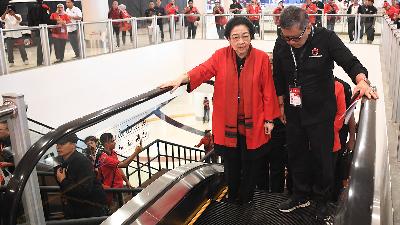
The PDI-P is preparing to replace Hasto Kristiyanto after he was questioned by the KPK in the Harun Masiku case. They are wary of the Palace’s interference.
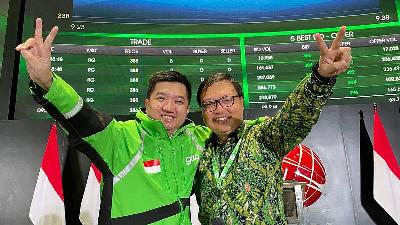
The founders of GoTo and Tokopedia sold their shares. New investors now have control of ownership.

Tokopedia made significant cuts in its workforce following its business consolidation with TikTok. A consequence of inefficient business operation.
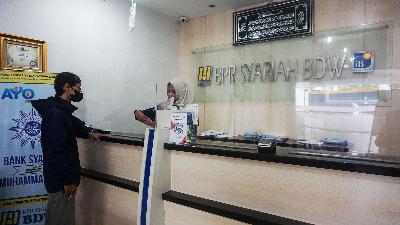
Muhammadiyah’s business networks cover various sectors, from education to financial services. It seeks to create a closed economic ecosystem.

Muhammadiyah withdrew trillions of rupiah from Bank Syariah Indonesia. It was the accumulation of various problems, from operational matters to appointment of commissioners.
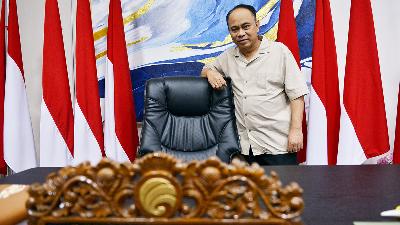
Communication and Informatics Minister Budi Arie Setiadi talks about the polemic over the planned revision of the Broadcasting Law and the Starlink Internet service.

Narendra Modi is likely to serve his third term as the Prime Minister of India. His campaigns are based on populism and religion.
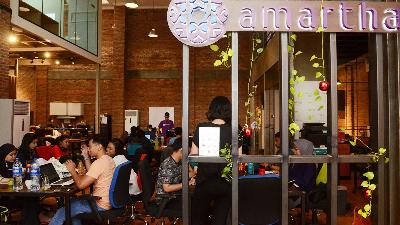
The fintech lending business is increasingly losing steam. Returns continue to decline while fund owners are opting for other investment portfolios.
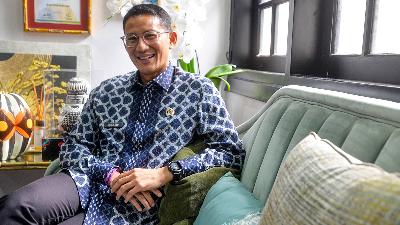
Tourism and Creative Economy Minister Sandiaga Salahuddin Uno assures that the tourism fee will not be imposed on plane tickets.
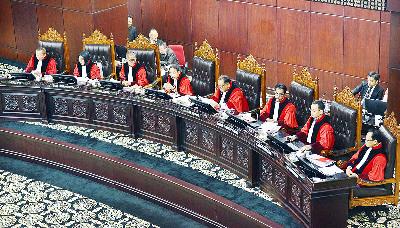
The Constitutional Court rejected lawsuits disputing the results of the 2024 presidential election. The option of disqualifying Gibran was discussed in a meeting of the judges.
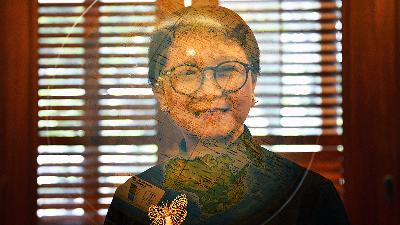
Foreign Affairs Minister Retno Marsudi explains the Gaza war and the Iran-Israel conflict with its impact on Indonesia’s economy.
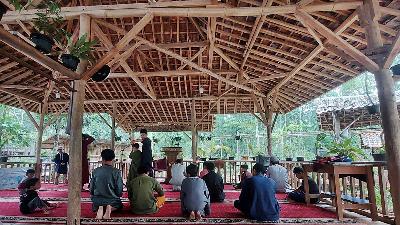
Islamic boarding schools (pesantren) cannot be closed even if they do not have a license from the government. There is no protection from the Ministry of Religious Affairs if legal problems arise.
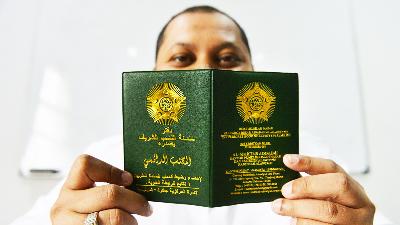
The Rabithah Alawiyah organization is in charge of recording and preserving the line of descent of the Alawiyyin in Indonesia. Seven books from Yemen serve as their guide.
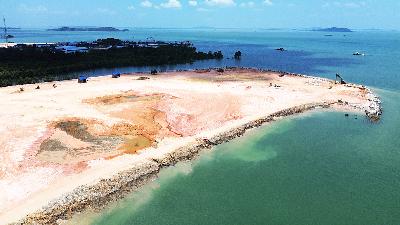
Several companies are applying for permits to utilize sediment, including sea sand. Large corporations use landfills for land reclamation areas.

Indigenous people are taking legal action against the President and the DPR for delaying deliberations of a bill. It has taken second place to the interests of investors.
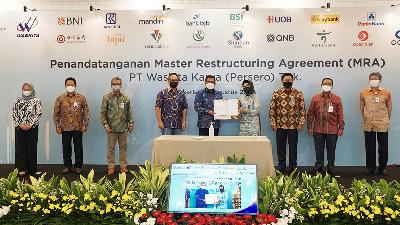
State banks stop distributing loans to state construction companies. Government assignment projects are burdening banks.
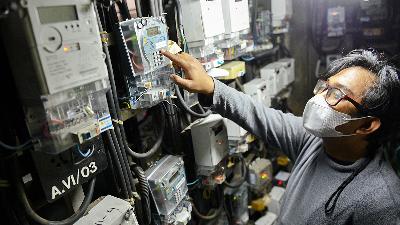
The government opens the option of switching energy subsidies for the free lunch program. This threatens poor households.

The government issues a regulation to develop the game industry. There will be a special funding agency.
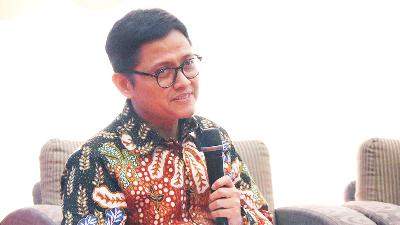
Discussions of the Asset Recovery Draft Law is stagnating in the DPR. It is key to preventing money laundering.

TikTok Shop’s acquisition of Tokopedia changes the Indonesian business map. It is not clear how small and medium enterprises will be protected.
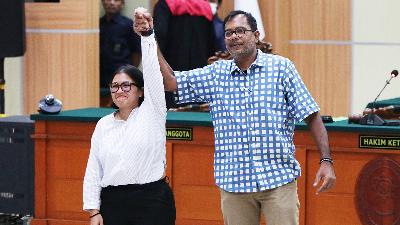
The prosecutor persists in filing a cassation against the acquittal of Haris Azhar and Fatia Maulidiyanti. It is a threat to the freedom of expression.

GoTo CEO Patrick Waluyo reveals the story behind the selling of Tokopedia shares to TikTok. How much profit did GoTo get?
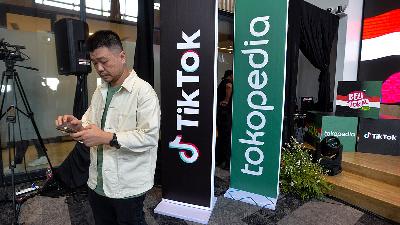
The integration of TikTok Shop with Tokopedia will reinforce GoTo’s business. Indonesia’s e-commerce competition landscape is changing.
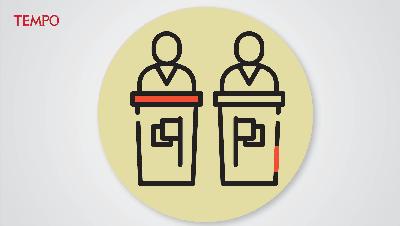
The presidential and vice-presidential candidates are relying entirely on gimmicks to exploit the emotions of the people. This moves the campaign away from substantive discussions.

Do the presidential candidates succeed in attracting young voters with social media gimmicks?
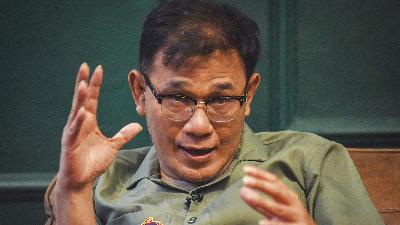
Budiman Sudjatmiko persuades other activists to support Prabowo Subianto. He claims he is not motivated by money.
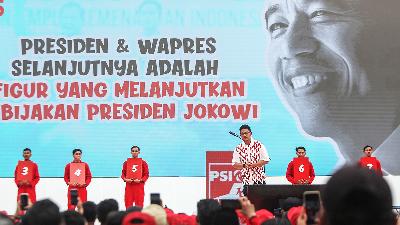
How does the Indonesian Solidarity Party get its funding? Is the aid from conglomerate bosses like Djarum’s owner true?

Presidential Chief of Staff Moeldoko is writing regarding his alleged interference in electric vehicle policy over Wuling’s SNI certification.

Post-Firli Bahuri, the Corruption Eradication Commission (KPK) is still walking backward toward its grave. A radical reform is needed.

The presidential candidates’ campaign teams are an illustration of the type of government they would form if elected. Businesspeople have a central role.
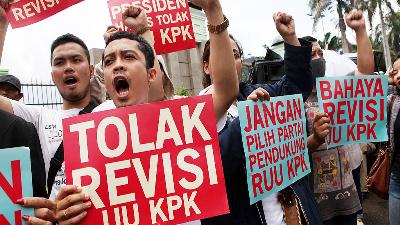
The Corruption Eradication Commission is no longer independent ever since it became part of the executive body. The fruit of the revised KPK Law.
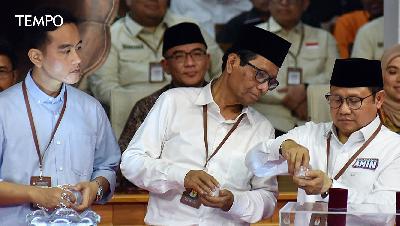
In Indonesia, presidential candidate debates are planned as bogus performances. There is no in-depth discussion of the issues.

Yet again, a member of the Supreme Audit Agency is involved in corruption. The system for selecting these state auditors is very poor.
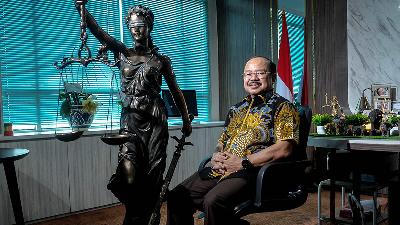
Judicial Commission Chairman Amzulian Rifai explains the boundaries of his authority in dealing with judges, and the Judicial Commission Bill.
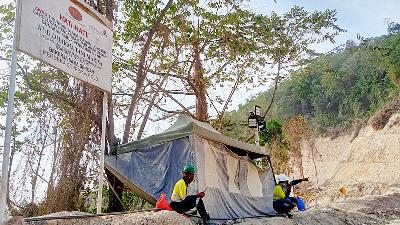
Sandiaga Uno and Garibaldi Thohir’s company is in conflict with local miners. The amount of compensation is considered inadequate.
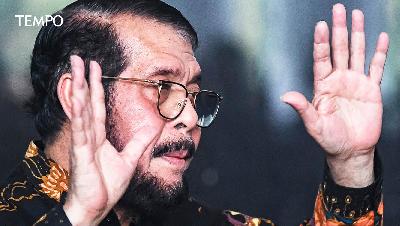
Having no democratic legitimacy, Gibran Rakabuming Raka must withdraw his candidacy for the vice-presidency.
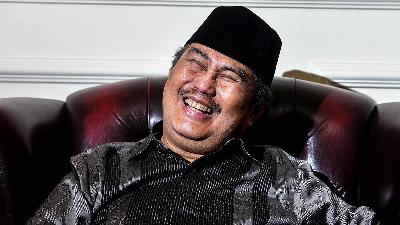
Tempo's special interview with MKMK Chairman Jimly Asshiddiqie regarding the dismissal of Anwar Usman as Chief Justice of the Constitutional Court.
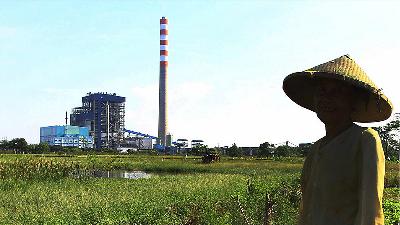
The program to put coal-fired power plants (PLTU) into early retirement is hampered by funding problems. As grants are stuck, the state budget must be disbursed.
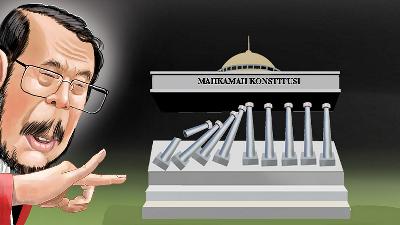
Constitutional Court Chief Justice Anwar Usman is reportedly maneuvering to lower the minimum age limit for presidential and vice-presidential candidates, paving the way for Gibran.
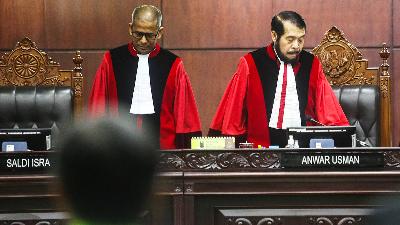
The Constitutional Court reportedly already made a decision in favor of a lawsuit regarding the minimum age requirement for presidential and vice-presidential candidates. The issue is rife with conflicts of interest.

Carbon trading is simply a way to mitigate climate change. The main aims are the energy transition and environmental protection.
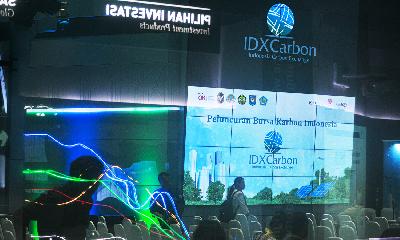
The Indonesian Stock Exchange established four carbon trading mechanisms. There were 27 transactions in three schemes in the initial sale.
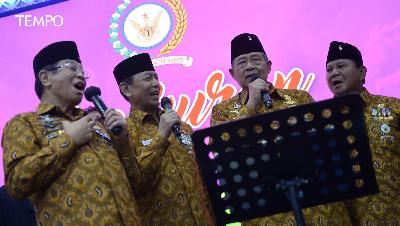
The 2024 presidential candidates are competing to garner support from retired generals. This perpetuates the militaristic nature of Indonesian politics.

The plan from the OJK to introduce carbon units as securities could lead to problems. Carbon trading no longer means a reduction in emissions.

The three soldiers who allegedly killed a civilian should be tried in a criminal court. The Military Courts Law needs to be revised.
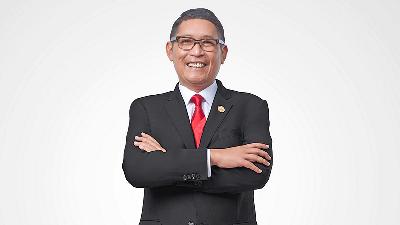
The OJK regulates carbon exchanges as a securities trading platform. How will the OJK prevent greenwashing in the carbon exchange?

The news in our media is problematic. Why is that?
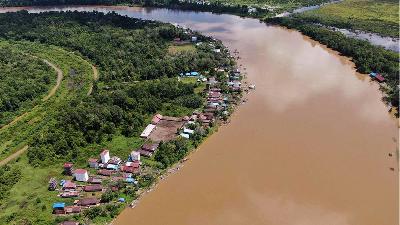
Voluntary carbon trading has stopped since 2021, due to upside down policies.
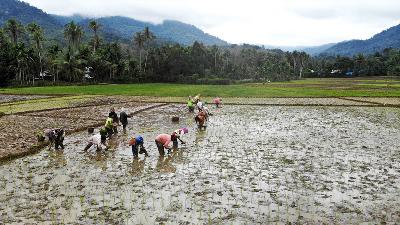
Individuals and companies are already implementing carbon trading in the voluntary market. But no price standard has been set.
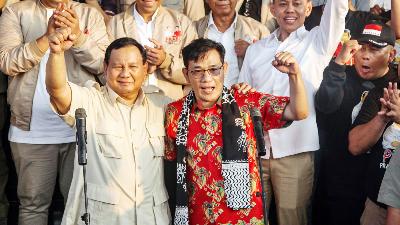
News summary, from the dismissal on Budiman Sudjatmiko to Food Estate.
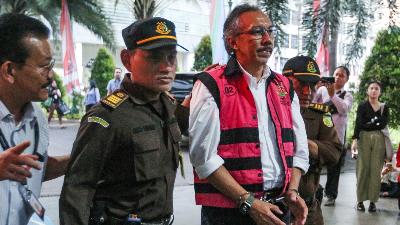
Former Director-General of Mineral and Coal, Ridwan Djamaluddin, is named as suspect in the Mandiodo Block nickel corruption case.
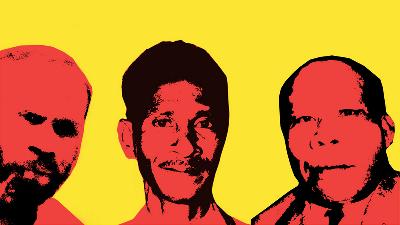
Why did the prominent figures from Papua fail to bring the Papuans to support the Republic of Indonesia?
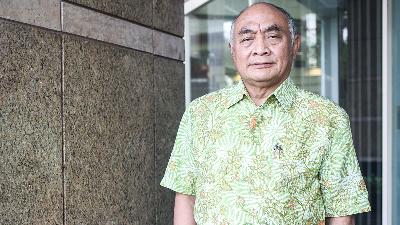
The government faces difficulties accommodating kidney donors and recipients. The need for kidney donors is high, but the supply is very limited.
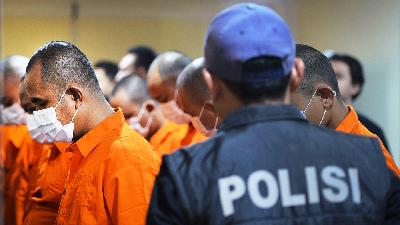
The police exposes Indonesian kidney trafficking network in Cambodia. The victims are enticed through social media.
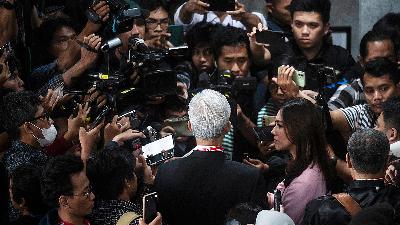
Ganjar Pranowo will be taking up environmental issues after the Constitutional Court’s verdict. Anies is considering joining the Prabowo-Gibran camp.
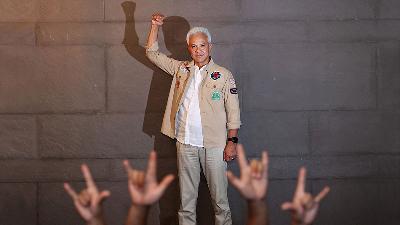
Ganjar Pranowo talks about the campaign, his relationship with the parties and the Jokowi effect.
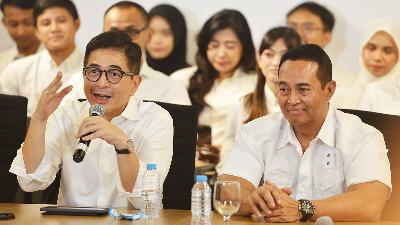
Several key people in President Joko Widodo’s election team are switching allegiance to Ganjar Pranowo. The teams are gearing up to face a strategy battle.

How is Arsjad Rasjid polishing Ganjar Pranowo for the upcoming presidential election?

The KPK’s civic knowledge test makes failed investigators look like defeated soldiers.
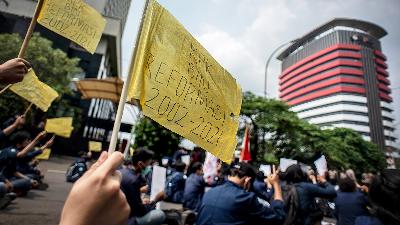
Non-active KPK employees are filing a lawsuit to several institutions against the civic knowledge test. The process of regulating the test is considered as legally flawed.
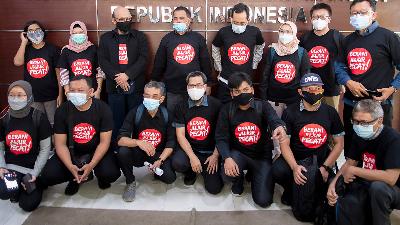
Corruption Eradication Commission (KPK) Chair Firli Bahuri allegedly already created a list of employees to be dismissed in November 2020. It is suspected that he pressured other KPK leaders to approve the civic knowledge test and inserted an article on it into KPK’s regulation. The dismissal of 75 employees was the final step in the complete disabling of the anti-corruption agency.
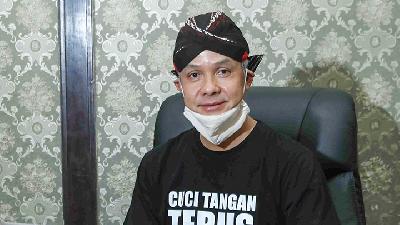
While several governors and regional heads sought permission to apply the Large-Scale Social Restrictions (PSBB) to waylay further spread of the coronavirus, Central Java Governor Ganjar Pranowo has a different take.

Maybe someone should write the history of ‘Who Knows’.
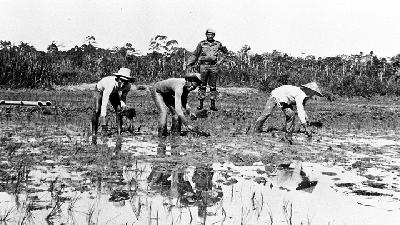
THE life and times of Amarzan Loebis was much like a long, winding road. From Tanjungbalai, Asahan, North Sumatra, he landed in Jakarta with an aim to continue his studies. But Amarzan, at the time just 23 and already known as a poet under the moniker Amarzan Ismail Hamid, was drawn to being reporter for the daily, Harian Rakyat Minggu, instead. At the newspaper, which happened to be affiliated with the Indonesian Communist Party (PKI), Amarzan edited the culture page.
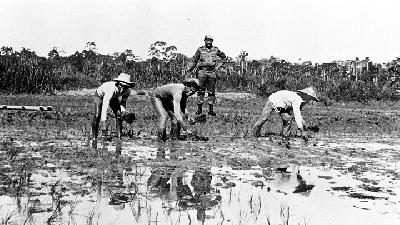
THE life and times of Amarzan Loebis was much like a long, winding road. From Tanjungbalai, Asahan, North Sumatra, he landed in Jakarta with an aim to continue his studies. But Amarzan, at the time just 23 and already known as a poet under the moniker Amarzan Ismail Hamid, was drawn to being reporter for the daily, Harian Rakyat Minggu, instead. At the newspaper, which happened to be affiliated with the Indonesian Communist Party (PKI), Amarzan edited the culture page. When the PKI established the People’s Culture Institute, better known as Lekra, Amarzan was one of a long line of artists who lent their support to the initiative. This involvement ended up with the New Order regime detaining him and finally throwing him to Buru Island after the political melee of 1965, without a trial. In 1979, after being released and returning to Jakarta, he began working for Tempo. After a year or so struggling with his stroke, the poet breathed his last on September 2 at the age of 78 years.

Zai Kuning’s work has been returned to Singapore from Venice and is now on display at the country’s TheatreWorks. Zai’s imagined ship is a metaphor for the world at that particular point in time

Lebanon acknowledges Indonesia’s contribution to maintaining world peace, particularly by placing its Garuda Contingent in the United Nations Interim Force in Lebanon (UNIFIL).

A Un, 45, whose real name is Surya Sudjeni, is known as the underwriter behind several crude oil thefts in South Sumatra. The network of these illicit 'oilers' stealing from Pertamina and private oil companies knows him as an 'investor' who buys their spoils. Surya owns Sinar Surya Maju Sentosa, a limited company with an office and a warehouse at Jatake in Tangerang, Banten. The company has a license from the energy and mineral resources ministry to deal in the processed oil business. Speaking to Tempo as Surya's representative, Anton, 55, said they had been dealing with illegal oil for years.

Richard Joost Lino, the current CEO of state-owned Pelindo II, is known for his straight talk and penchant for betting. This is evident in how he faces challenges and opposition, whether from his own employees, his colleagues or even government ministers. Recently, Lino was reported to the police by Indonesian Democratic Party of Struggle (PDI-P) politician, Masinton Pasaribu, who is also a former Corruption Eradication Commission (KPK) official, for allegedly giving a gratuity to State-Owned Enterprises Minister Rini Soemarno.
The public is unlikely to forget how Lino stood up against Coordinating Minister for Maritime Affairs and Natural Resources Rizal Ramli, also known for his sometimes injudicious language, over the damage at the port area caused by a project overseas by Rizal, as well as charges that Lino used State funds to place ads in a number of major media organizations.

As the world's biggest seaweed producer, Indonesia lags behind other countries in processing seaweed products. "Our biggest competitor is China, yet they buy their raw materials from us," said Soerianto Kusnowirjono, chairman of the Indonesian Seaweed Industry Association (Astruli). In an effort to seek a solution to the problem, Astruli last March launched its roadmap for seaweed industry development.

STEVE Hamilton, the Deputy Chief of Mission of the International Organization for Migration (IOM) in Indonesia, lauded the efforts of the Acehnese people in doing something to help the boat people from Myanmar and Bangladesh. "They're pulling together and seeing this for what it is, people in need," he said.
Nevertheless, Hamilton acknowledged that no government is ever prepared to take in large numbers of refugees at one time. With more than 1,000 refugees already in Aceh, many are worriedly preparing for the arrival of the estimated 5,000 people still feared to be at sea. Tempo English reporter Amanda Siddharta interviewed Hamilton to discuss the challenges ahead. Excerpts:

THE Jakarta Regional House of Representatives (DPRD) also known as the City Council, has agreed to use the right of inquiry to investigate a suspected violation over the process of submitting the 2015 Regional Budget to the Home Affairs Ministry. One man behind the move to investigate the policy of Jakarta Governor Basuki Tjahaja Purnama is Abraham Lunggana, the DPRD deputy speaker from the United Development Party (PPP).
It seems members of the City Council are angry over the budget submitted by Basuki because it was not the one approved jointly by the government and the council. Basuki, better known as Ahok, submitted an early copy of the Jakarta budget which did not contain additional proposals from the DPRD because he found many 'piggy-back' projects inserted after the joint discussion of the budget. He counted phantom or mystery projects valued at Rp12 trillion, and duly reported them to the anti-graft commission, the KPK.

LEONARDUS Benjamin (Benny) Moerdani was a chapter in the history of modern Indonesia. He appeared at the beginning of the 'times of change', in an era the Republic's founder was preparing to step down and be replaced-not without injury-by a regime that would govern Indonesia for more than three decades.
No discussion on what became known as the New Order would be complete without a mention of Benny Moerdani. His name emerged when diplomatic relations with Malaysia were being restored, along with other figures such as Ali Moertopo and Des Alwi. Diplomatic ties with Malaysia had been severed dramatically with the proclamation of the 'People's Two Commands' (Dwikora) by President Sukarno in 1963. Sukarno viewed 'Malaysia' as a project of 'Imperialist Britain', and therefore it had to be 'crushed'.

JOURNALISTS covering Jakarta Deputy Governor Basuki Tjahaja Purnama, better known as Ahok, are aware that whatever he says can become headlines. No other public official has a way of saying things that make it eminently quotable.
But Ahok's direct and open way of talking is not to everyone's liking. He has made enemies, and he is bound to make many more following the Constitutional Court's verdict that rejected the appeal last week by also-rans Prabowo Subianto and Hatta Rajasa and reconfirmed the election of Jakarta Governor Joko Widodo as president and his running mate Jusuf Kalla as vice president. Automatically, this paves the way for Ahok to ascend to the capital city's top executive job.

Febri Prasetyadi is known to be Adaro boss Garibaldi Thohir's right-hand man. Investigators think he knows who bribed Rudi Rubiandini.

For the past 10 years, independent films—known as indie films—have become the films of choice for well-known actors and actresses as well as directors seeking prestige. After being stuck in mainstream films, top-name actors and actresses search out independent films and visit the Sundance Film Festival, an international independent film festival supported and nurtured by actor/director Robert Redford.
What is the Sundance Film Festival? Can it still maintain its special character as an indie film festival which gives priority to new directors making films outside of Hollywood? And what position do Indonesian films and films about Indonesia have at this festival? Film observer and lecturer in film at Binus International, Ekky Imanjaya visited the Sundance Film Festival 2011. This is his report.

NEXT July, in Hokkaido, Japan, a G8 meeting will take place. The summit will discuss the position of developed countries concerning the issue of climate change.
As the future site of the summit, Hokkaido itself has its own climate problem. Hokkaido is well-known as the coldest region in Japan, but nowadays the isle is not as cold as it used to be. It is suspected that this is caused by global warming
Last December, Arif A. Kuswardono from Tempo together with journalists from China and the Asia-Pacific were invited by the Japanese government to visit Japan. Here is their report on the problems of climate in Hokkaido.

Imported books will be exempted from tax. This needs to be applied to other knowledge-based media.

There is suspicion that President Megawati had foreknowledge of the 1996 attack on PDI offices that left five dead.

American bombs have been raining on Afghanistan for more than a week now. And there is no sign as to when these attacks might stop. Using a new and rather unusual tactic of 'attack combined with food aid', the US is thought to be increasingly keen to get at Afghanistan's ruling Taleban before winter sets in in November. TEMPO journalist Ahmad Taufik reports from the Afghan border.

In East Kalimantan's largest city, Balikpapan, environmental study has now been incorporated into the local school curriculum. In Jayapura, Irian Jaya, it's still just an extra subject.

From an initial field study almost 30 years ago one American has carved out a niche providing economic information and knowledge about Indonesia.

From an initial field study almost 30 years ago one American has carved out a niche providing economic information and knowledge about Indonesia.

Hashim Djojohadikusumo is leading the Indonesian delegation at the climate change conference COP29 in Azerbaijan. But he is more a representative of corporate interests.
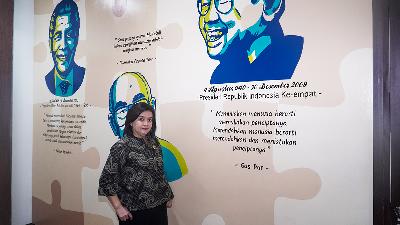
National Commission on Human Rights (Komnas HAM) Chair Atnike Nova Sigiro on human rights enforcement in the Prabowo Subianto era.

Prabowo’s close associates worked to prevent the issue of serious human rights violations from resurfacing. They prepared a white paper containing a narrative aimed at clearing Prabowo’s name.
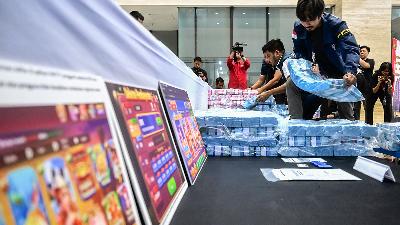
The number of people suspected of protecting online gambling sites increases to 18. Employees of the Communication and Digital Affairs Ministry are involved.

The Communication and Digital Affairs Ministry is tidying up house now that 10 of its employees are accused of participating in online gambling. Their flow of cash is being scrutinized.

Former Communication and Informatics Minister Budi Arie Setiadi is implicated in an online gambling case. He allegedly met with representatives of gambling operators.

The most significant factors behind Trump’s victory were Covid-19 and the Federal Reserve’s response. Life is likely to become harder for Americans—and for much of the rest of the world.

There are indications that the police are taking sides in local elections in a number of regions. This is the next setback for democracy after the presidential election.
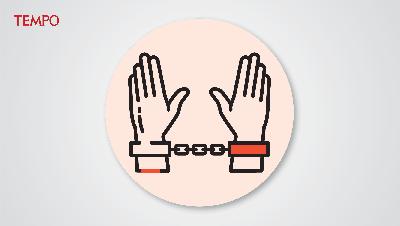
There are many irregularities in relation to the detention of Tom Lembong. Without sufficient evidence of corruption, this case can be considered as politicization, and not enforcement, of the law.

Minister of Higher Education, Science and Technology Satryo Soemantri Brodjonegoro explains BRIN’s position in the Prabowo government.
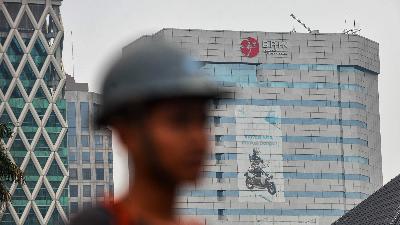
The position of BRIN remains uncertain under Prabowo Subianto’s administration. The restructuring of the research agency is hampered by political interests.
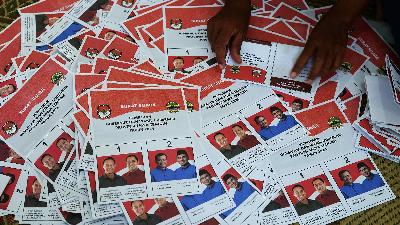
Jokowi and the police are helping to bring Ahmad Luthfi-Taj Yasin to victory in the Central Java Regional Head Election, allegedly pressuring village heads to show support.
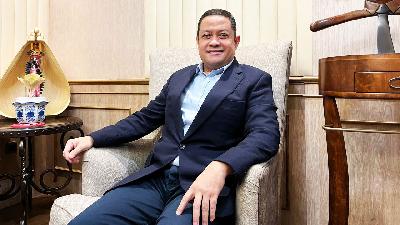
Tom Lembong’s lawyer on the irregularities of his case.
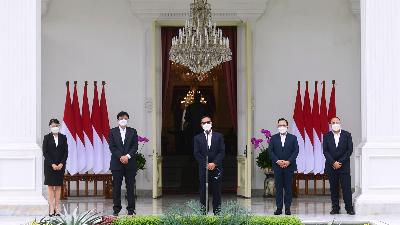
The Indonesia Investment Authority is set to merge with Danantara, but it still fails to optimize investments and faces ongoing issues with foreign investor confidence.
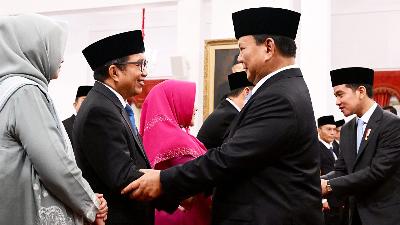
Prabowo Subianto is establishing BPI Danantara to manage state-owned enterprises. There are reportedly tug-of-wars and a number of obstacles in the process, including the obligation to revise laws.
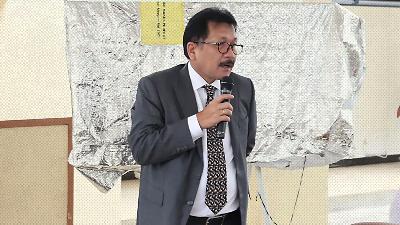
Judge bribery suspect Zarof Ricar was once a high-ranking Supreme Court official. He bankrolled a film about a judge.

The three judges who acquitted Ronald Tannur often reported for ethics violations. Their bank accounts show transactions amounting to the billions.

Prabowo Subianto orders four ministers to rescue the bankrupt textile company Sritex. A potential bailout from the state is on the table.
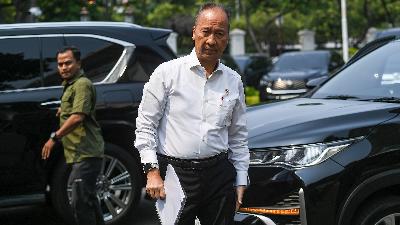
Interviews with Industry Minister Agus Gumiwang Kartasasmita and Sritex President Commissioner Iwan Setiawan Lukminto on the company’s bailout.

Capital outflow becomes increasingly clear at the outset of Prabowo’s administration. The large cabinet undermines investors’ confidence.

Former Trade Minister Thomas Lembong is arrested by the Attorney General’s Office over corruption allegations. When will other ministers be questioned?

Prabowo Subianto is hoping to erase his sins in relation to the 1998 kidnappings. Gross human rights violations will not be a priority.

The obligation to obtain halal certification leads to higher economic costs and corruption. Labeling products that are non-halal would be more efficient.
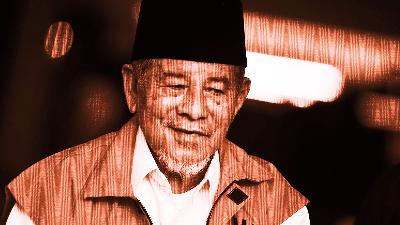
The term “Medan Block” emerged during the trial of former North Maluku Governor, Abdul Gani Kasuba. Medan Block is believed to refer to pre-allocated nickel mining concessions in Halmahera.
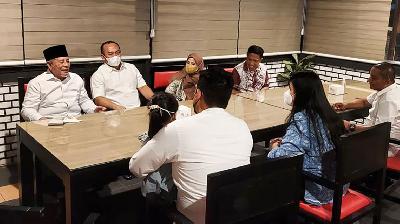
Bobby Nasution is suspected of managing the Medan Block nickel mine since 2021. He met with Abdul Gani Kasuba before becoming the Mayor of Medan.

Halal certification is slow due to inadequate supporting infrastructure. It has the potential to trigger a high-cost economy.

Entrepreneurs are pressured by the mandatory halal certification regulations. The costs associated with obtaining halal labels are considered expensive, and the procedures are complicated.
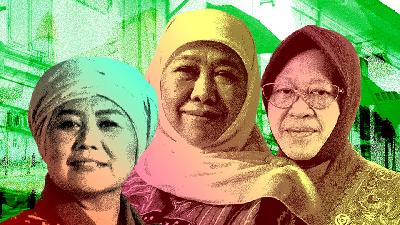
Three East Java gubernatorial candidates—Luluk, Khofifah, and Risma—talk about the competition in the 2024 regional head elections.
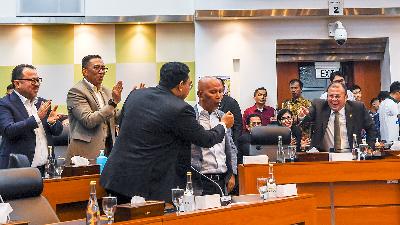
The PDI-P received the most positions as leaders of the DPR working bodies. Surya Paloh met with Bahlil Lahadalia to discuss the allocation of commission chairs.
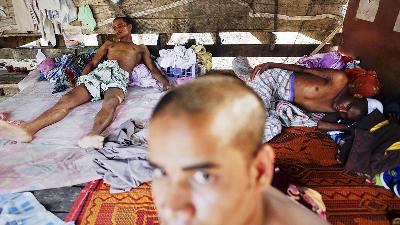
Rohingya refugees in Thailand, Malaysia, and the Philippines are treated differently than those in Indonesia.
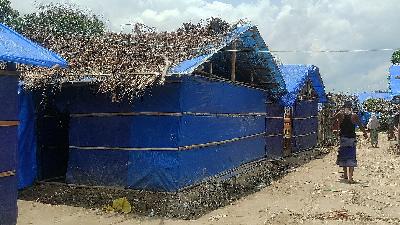
The increasingly overcrowded refugee camps demand improvements in the mechanisms for handling Rohingya refugees. The number of refugees continues to rise.

Prabowo Subianto is inheriting an inefficient economy. Yet his new administration is likely to follow Jokowi’s economic model.
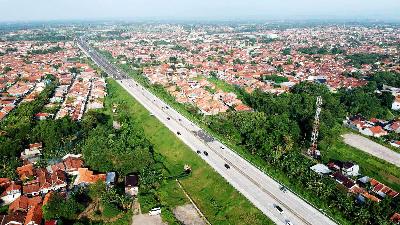
The Joko Widodo administration leaves a heavy burden for state-owned enterprises. Many projects result in big debts.
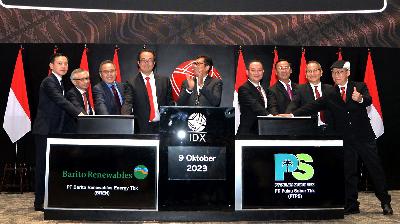
The Stock Exchange detects alleged violations in the IPO of Barito Renewables Energy. There are indications of maneuvering around public shareholding requirements.

South Kalimantan Governor Sahbirin Noor is suspected of receiving commissions on three projects in the e-catalog. He has not been seen since being named a suspect.

The KPK uncovered alleged embezzlement of the Taspen pension fund involving Sinarmas Sekuritas. The result of poor supervision by the OJK.

There are indications that the selection of the KPK leadership for the 2024 to 2029 period is in breach of a Constitutional Court ruling. The process needs to be rerun.

Farwiza Farhan, the winner of the 2024 Ramon Magsaysay award talks about conservation of the Leuser Ecosystem in Aceh.
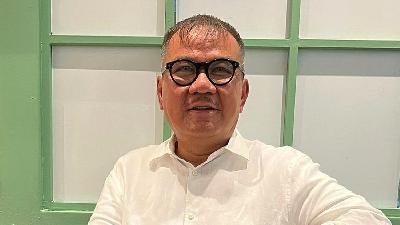
The KPK Leadership and Supervisory Board Selection Committee claimed to have followed procedures, and Jokowi reportedly did not intervene.

Explanations from State Secretary Minister Pratikno and Maritime Affairs and Fisheries Ministry on fishery business and the case of illegal ships in eastern Indonesia.
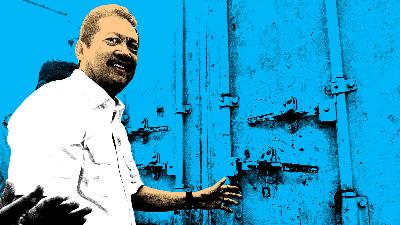
Minister Sakti Wahyu Trenggono revives a shutdown port. There is indication that the minister’s son is involved in the fisheries business.
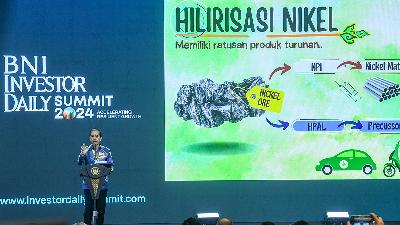
Jokowi’s campaign promoting his successes is considered as not portraying actual conditions. Customary communities are among the victims of his administration.
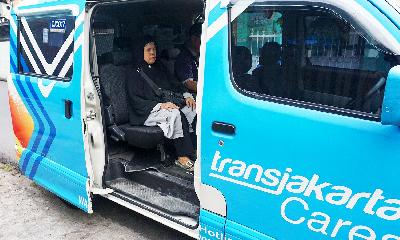
Jakarta's regulations were considered as failing to fulfill the aspirations of differently-abled people

The contest for the selection of the Supreme Court Chief Justice is heating up. There are indications it is riddled with the interests of the government and tycoons.
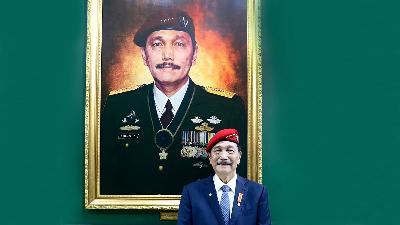
Luhut explains his close ties with Jokowi, and the plans of the president-elect Prabowo. This is his first interview with Tempo after the one on the Panama Papers eight years ago.
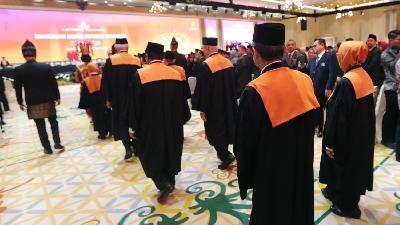
The race for the position of Chief Justice of the Supreme Court is heating up amid a flurry of allegations against certain candidates. There is suspicion of backing from business circles.

VIVA Group is facing a restructuring process under a debt payment suspension scheme and is threatened with bankruptcy. There are maneuvers to lobby creditors and reduce debt.
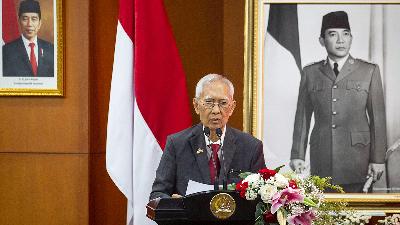
President Joko Widodo is suspected of supporting the restoration of Suharto’s name, with a possibility of being declared a national hero.
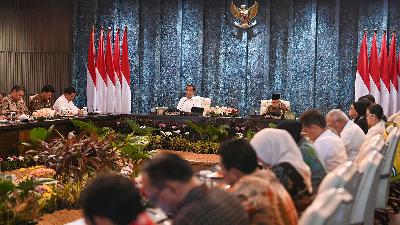
Jokowi is preparing for the incoming Prabowo-Gibran administration starting in late February 2024. He hopes that Prabowo can continue his programs.

The police arrested a drug baron who was operating from inside a prison. It is a chronic problem that remains unsolved.
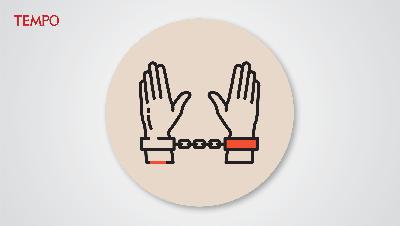
The kidnapping of pilot Phillip Mehrtens was ended through negotiation. This is a lesson for the Prabowo administration about how to resolve the Papua conflict.
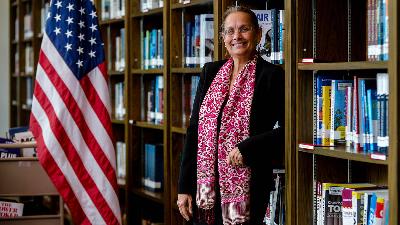
United States Ambassador Kamala Shirin Lakhdhir speaks about women, education, and Indonesia’s new administration.
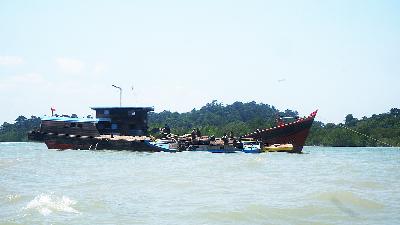
The demand for sea sand continues to increase, driven by the growth of infrastructure, construction, and the glass and solar panel industries.

Indonesia is poised to fall into the middle-income trap. Only a few people enjoy the economy pie.
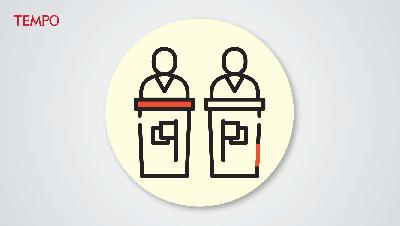
The hand of the government is apparent in Kadin’s internal conflict between Arsjad Rasjid and Anindya Bakrie. This has no effect on the public.

Prabowo Subianto is to form a cabinet comprising numerous ministers. This is made possible through a revision of the law.
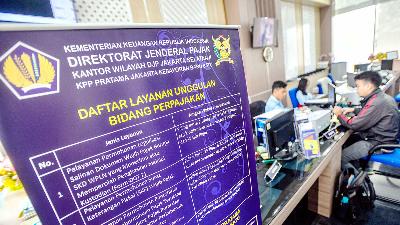
The leakage of six million Taxpayer Identification Numbers (NPWP).
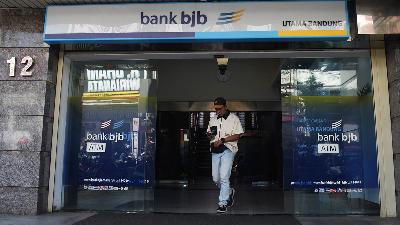
The KPK named five suspects in the Bank BJB advertising budget corruption, but it has yet to implicate high-ranking officials in the West Java Provincial Administration.
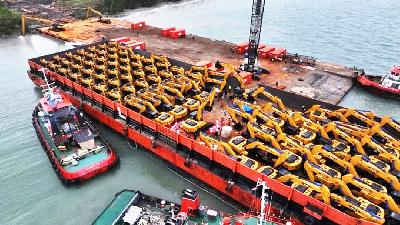
The clearing of forests for the food estate project does not yet have an environmental impact assessment. It will be issued later.
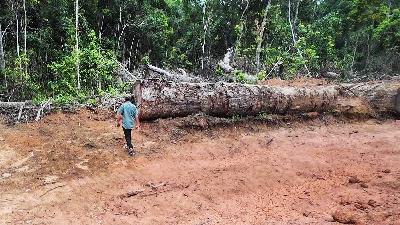
The rice paddy development program will sacrifice 1.02 million hectares of customary land in Merauke. It will also annihilate biodiversity.
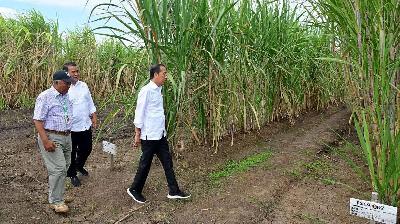
Preparing 2.9 million hectares of land under the food estate program in Merauke, South Papua, the government aims to achieve rice and sugar self-sufficiency within three to four years. Mirroring the previous failed food estate initiative.
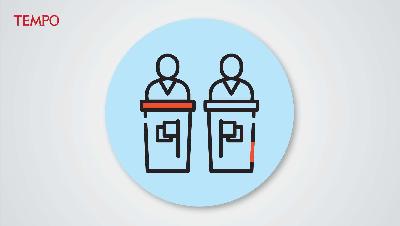
There is a strong aroma of politics around the appointment of Saifullah Yusuf as Minister for Social Affairs. President Jokowi should focus on dealing with the problems of poverty.
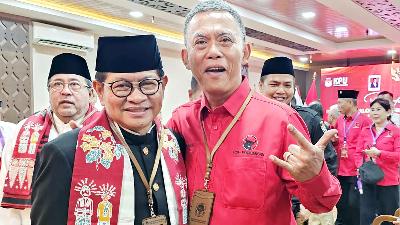
Two rivals in Jakarta’s upcoming regional elections are sharpening their winning strategies. There is a rift in the Indonesia Onward Coalition.
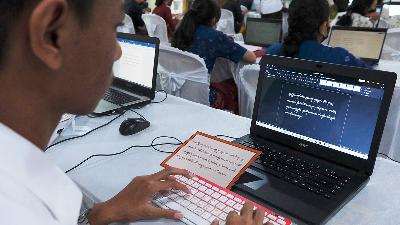
The Language Agency uses artificial intelligence to preserve endangered regional languages, starting with the creation of a vast corpus data.

Foreign companies are urging President Joko Widodo to implement the power wheeling scheme. The private sector is pushing to hasten the energy transition.

Articles on power wheeling prevent the legislation of a New and Renewable Energy Bill. State electricity company PLN’s unique position could be left precarious.

The illegal trade in rhino horns continues even though it is often foiled. This is proof of the weak protection of rhinos in their habitats.

The DPR rejected all candidates for Supreme Court and ad hoc human rights justices put forward by the Judicial Commission. There needs to be transparency in the selection process.
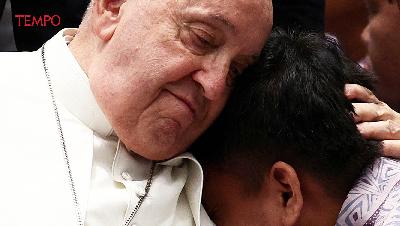
Pope Francis was enthusiastically welcomed on his visit to Indonesia. It was the simple journey of a religious leader and campaigner for social justice.
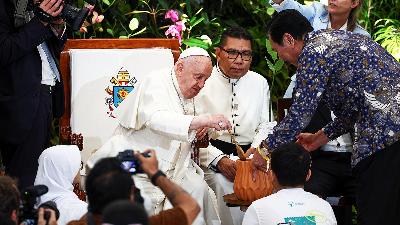
Indonesia and the Vatican enjoyed a good relationship long before the Pope’s visit. The Vatican reportedly helped Indonesia lobby the European Union.
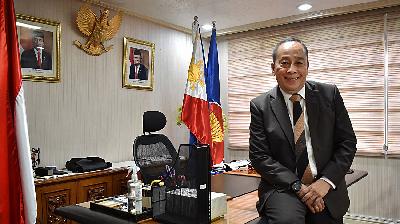
Former Governor of the National Resilience Institute and Indonesian Ambassador to the Philippines, Agus Widjojo, on the revision of the Indonesian Military Law.
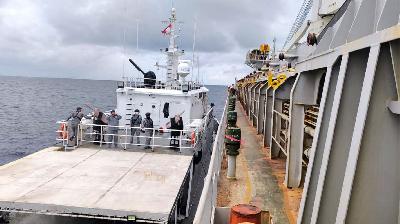
A biomass plant has the potential to clear 693,795 hectares of Gorontalo’s forest. The raw material for the wood pellets intended for export comes from deforestation.
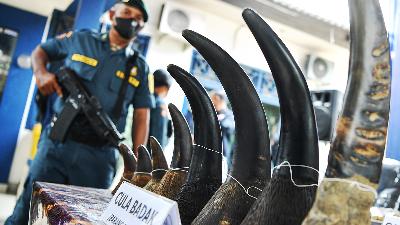
The Environment Ministry thwarted the sale of Javan rhino horns in Palembang. This is linked to a network of Ujung Kulon rhino poachers.
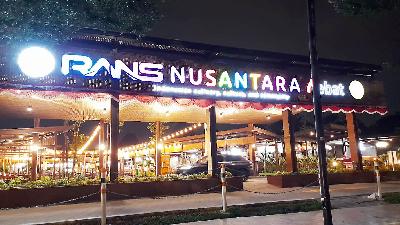
Startups owned by Gibran Rakabuming Raka and Kaesang Pangarep are flooded with venture capital injections. Assisted by a presidential advisor.

A photograph of a private jet window exposes Kaesang Pangarep and Gibran Rakabuming Raka’s connections to a network of business actors.

The PDI-P canceled its plan to nominate Anies Baswedan for the Jakarta gubernatorial election. Pressure came in the form of legal cases and revisions to the MD3 Law.
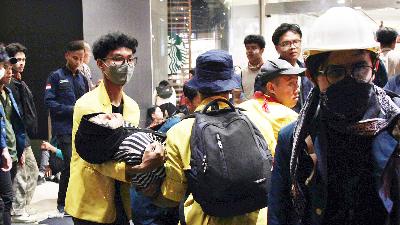
Violence broke out as police attempted to disperse a demonstration in Central Java. The use of tear gas needs evaluation.
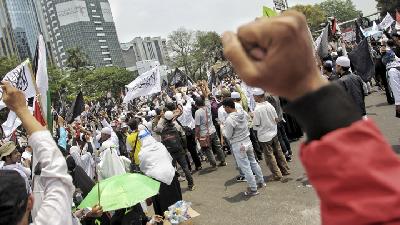
The police arrested Abdul Basith, an IPB lecturer, and members of his group, for making preparations to carry out bombings in Jakarta. They planned to conduct it at the same time as a 212 Jihadi Action event. Three retired military generals are implicated.

In West Java, law enforcement authorities, like elsewhere, are tasked with arresting criminals, not cover up their crimes. But the Corruption Eradication Commission (KPK) testimony of former Subang Regent Ojang Suhandi, who confessed to having bribed police officers to escape the law, proves otherwise. Instead of chasing criminals, the police conspired with them to cover up crimes.
For his part, Ojang, a member of the Indonesian Democratic Party of Struggle (PDI-P), was caught bribing a prosecutor in an attempt to have his name erased from the social security fund (BPJS) graft case file. A court had found two former officials of the Subang health services department guilty of embezzling Rp4.7 billion from the social security claim refund of Rp41 billion, and subsequently sentenced them to four years in prison.

At a busy intersection in the Etterbeek area, several police officers suddenly burst into a cafe where people usually just gathered to smoke. Pistols in hand, last Tuesday afternoon they moved quickly to search every corner. Then they left just as quickly as they had come. There was no fuss.
Search followed search in the midst of increasingly tight security in Belgium in the aftermath of the terror bombings at Brussels' Zaventem Airport and Maelbeek Metro Station that morning. The attacks, which killed 30 people, left locals in a precarious situation, completely disrupting their daily routines.

A Ferrari and two Lamborghinis can be found outside the home of Agung Tobing, parked next to dozens of other cars lined up as they would be at a car dealership. There are two antique cars decorated with wayang (shadow puppet) characters, painted by the renowned artist, Nasirun. There is even a helipad.

Long before the bombs went off at the Marriott and Ritz-Carlton hotels last Friday in Mega Kuningan, Jakarta, the police were on to the possibility of an attempted bombing. In fact, a day before the explosions, the bomb squad had combed through the office of the Corruption Eradication Commission (KPK), following a telephoned bomb threat. However, just like the incident six years ago at the same location, the police were too slow to act.

Members of JI are receiving military training on Mt Sumbing under the supervision of Abu Dujana and Zulkarnain.

The forensics team identified most of the victims of the second Bali bombing, but the identity of the three perpetrators is harder to confirm.

The police have failed to find the motive of the Tentena bombing, despite questioning 142 witnesses. A bombing at the home of Abu Jibril adds to the mystery.

Darul Islam has been suspected of involvement in a number of bombings. The radical organization has a history filled with troubles.

Police are blaming GAM activists for the recent rash of bombings in Jakarta. Dozens of Aceh traders have been arrested.

A sluggish attempt in dealing with the bombing terror might check economic recovery.

The world still needs good people. But what is considered good has no clear law.

Established to provide an opportunity to obtain loans, Danantara could sink Indonesia into a debt quagmire. Risk mitigation is key.
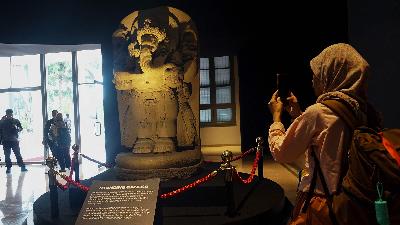
A collection of hundreds of cultural artifacts from the second phase of repatriation from the Netherlands is on display at the National Museum of Indonesia.

Danantara will reduce the authority of the SOEs Minister. Transferring the management of major SOEs will make the Ministry almost powerless.

The food estate project in Central Kalimantan turned into an oil palm plantation. The government failed to learn from the mistakes of the past.

The food estate program, or rice field creation initiative in Central Kalimantan, was neglected and instead converted into oil palm plantations owned by private companies.

Jokowi’s son-in-law, Bobby Nasution is caught up in alleged bribery involving a mining permit in North Maluku. He is accused of selling his influence.
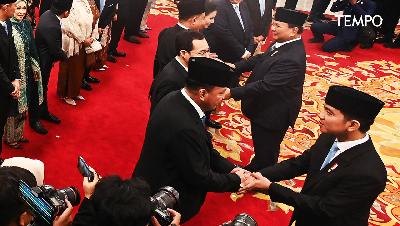
A number of problematic individuals are appointed to Prabowo Subianto’s cabinet. It will be difficult for the government to be effective in its first one or two years.
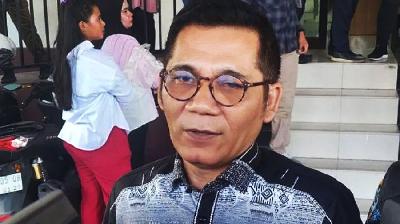
Former North Maluku Governor Abdul Gani Kasuba acknowledged meeting with Bobby Nasution but claimed he gained no advantage from it.
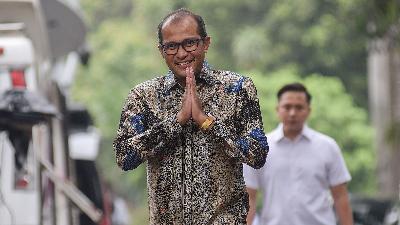
Prabowo Subianto appointed ministers and deputy ministers with problematic backgrounds in his cabinet. Several of them are closely associated with businessman Haji Isam.

The new ministries and agencies established by Prabowo Subianto cannot operate immediately. Some lack office space, have tight budgets, and are short on staff. The authority of the Haj and Umrah Organizing Agency even violates the law.

The rupiah is weakening amid the power transition, with global factors also exerting heavy pressure.

Food, like language, clothing, and customs, is a marker of our roots. Especially in the past.
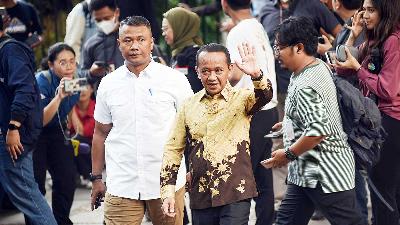
President Jokowi entrusted his confidants to join Prabowo’s cabinet. Several ‘volunteers’ also received positions.

Prabowo Subianto formed a large cabinet to accommodate the interests of parties, businessmen, and his supporters. Mining entrepreneur Haji Isam is suspected of proposing several ministerial candidates.

Empathy is the key to happiness. We are happy when we help others, we are happy when we do good.
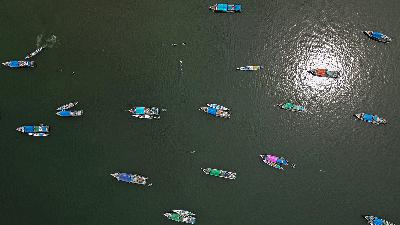
The family members of some ministers enter the fishery business. Other problems, such as the activity of illegal foreign vessels and the abuse of crew members, still prevail.
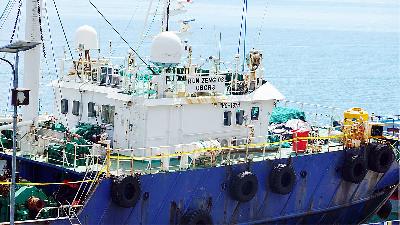
Illegal fishing and slavery continue to occur in Indonesian waters. Crew members are vulnerable to abuse.

Life is not always about science and philosophy. This is where literature shows its value.
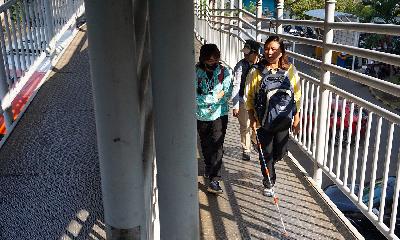
Tempo accompanied several differently-abled people as they navigated public transportation in Jakarta.

Officials are all trying to avoid responsibility for illegal gold mining in protected forests. The dangers to the environment and to health are being ignored.
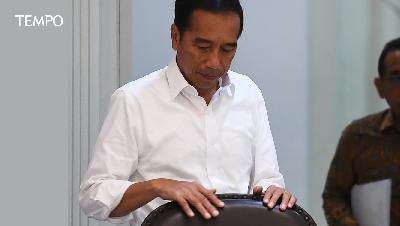
Jokowi passed a number of strategic policies at the end of his administration. Making the president-elect a hostage to fortune.
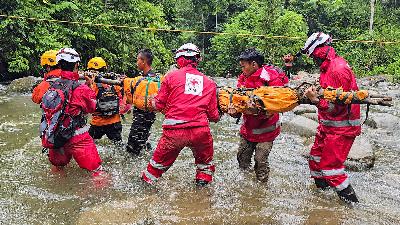
Illegal gold mines that collapsed in Solok Regency, West Sumatra, damage the Batanghari watershed. Authorities are suspected of protecting investors.
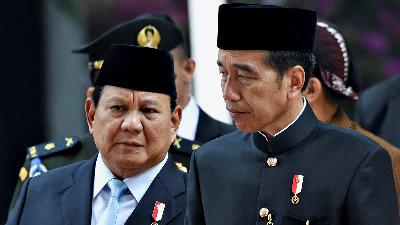
Before Jokowi’s term ends, the Presidential Palace is maneuvering to provide cover for Gibran. This includes erasing traces of the Fufufafa account as well as interfering in the formation of Prabowo’s cabinet.

Indonesia and other countries continue to oppose the European Union’s Deforestation Regulation. The European Commission proposes a delay.

Indonesia’s economy and financial markets are once again facing volatility stemming from China and the Middle East, leaving no respite for investors.
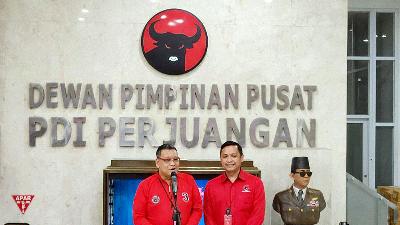
Political parties replace elected legislative members over alleged vote manipulation.

The partnership between Riau regional company and Kingswood Capital Ltd resulted in criminal charges, with two top executives now facing allegations of embezzlement.

Egianus Kogeya quietly freed Susi Air pilot Phillip Mark Mehrtens. His hope to trade the pilot for Papua’s independence failed.
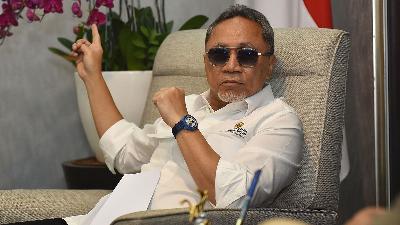
Trade Minister Zulkifli Hasan on the issues ranging from sea sand export policy to Prabowo Subianto’s bureaucratic management style.
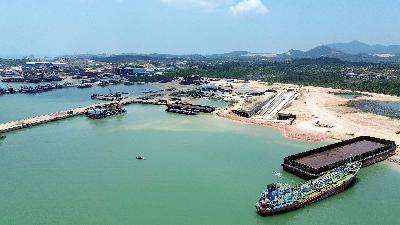
Dozens of companies are seeking permits to process marine sediment. They include businessmen, regional head candidates, and former cabinet ministers.

The police raided illegal nickel mining at the Mandiodo Block in Southeast Sulawesi. They also reprimanded Antam.
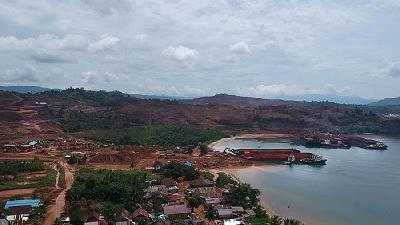
Eleven companies are accused of illegal operations for nickel extraction in the Mandiodo Block, North Konawe, Southeast Sulawesi. There are conflicts between politicians and business parties.
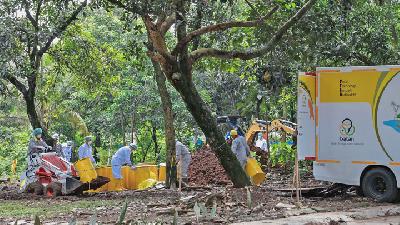
The Nuclear Energy Regulatory Agency discovered some radioactive cesium-137 at the Batan Indah Housing Complex in Serpong, South Tangerang. It is suspected of originating from leftover industrial equipment.

Careless disposal of radioactive waste endangers life and the environment. Batan and Bapeten’s monitoring is still weak.

Police Officer Budiono feels like his life has been given a new lease. He barely escaped death in the Thamrin shootout three weeks ago. Shot at close range, the bullet grazed his lungs and wounded his innards. Budiono almost died on the operation table. He was unconscious for more than three days.
The terrorist attack known as the Sarinah incident has changed Budiono's life. He has been grateful ever since, after he passed the most critical stage in his medical treatment. He received a gold pin and an extraordinary promotion from the National Police. Most importantly, he is now fired with new resolve. "I no longer smoke," said Budiono, 43, who was a heavy smoker before the shooting incident.

A smooth and shiny concrete road extends from Dasan Lekong hamlet to the center of Barejulat village, West Nusa Tenggara. It covers a distance of only 600 meters. However, for Efendi, a driver delivering gallon tubes of drinking water, the village's big problem has been solved. "Formerly, my truck frequently got stuck in waterlogged mud holes," he said. Local people no longer need to take a detour on rainy days.
Development of the road stalled two years ago. The problem was settled only after somebody complained to the Talenta FM community radio station. When news of the unfinished road was broadcast, the village chief was asked about his responsibility in an interview with the radio's crew. "After that, construction was resumed," said Efendi, 30.

THE clumsy move by a few members of the House of Representatives (DPR) should not be a cause of concern to the management of state radio station Radio Republik Indonesia. This overreaction was nothing more than a final attempt at a show of force in the midst of attempts to understand the confusion of determining the way the political wind is blowing. In other words, this maneuver was an attempt to try their luck.
Using the excuse of lacking in common sense, the chair and vice-chair of DPR Commission I bragged that they would summon the RRI executive director to "demand an explanation". The public broadcaster was seen as being 'hasty' in organizing and broadcasting the results of a quick count that it carried out during the July 9 presidential election. According to some legislators, broadcasting the quick count adversely affected the neutrality of RRI. The question of funding was also raised as it involved the State Budget.

Television and the internet may be dominant in cities around Indonesia, but in rural areas it's the radio, particularly community radio stations, that hold sway over the local population. More than 300 community radio stations throughout the archipelago have become the lifeblood of remote villages unable to benefit from modern technology. The community radio has become a vital instrument in effecting social change. Through such radio broadcasts, people learn about schooling, the environment and rights of the child. Tempo English reports from the provinces of Southeast Sulawesi, East Nusa Tenggara and Central Kalimantan.

To promote children's rights, an NGO in Maumere established a community radio station. All of the announcers are kids.

A local radio station has brought information and entertainment to people who live on the outskirts of the Sebangau National Park in Central Kalimantan. It has also strengthened bonds of friendship.

After withdrawing from politics, Agus Salim began giving religious talks on a Dutch radio station. Sometimes he was asked to translate pop songs.

The DPR Supervisory Team for Bank Century insists Boediono should be a suspect. The KPK, however, has found no illegal conduct.

Via community radio, residents of the Wakatobi Islands endeavor to protect their environment and increase their livelihood.

The success story of a village boy on the world stage who designs radios in an environmentally friendly way.

There is no reason why Boediono cannot be the central bank's top man. His replacement as economic coordinating minister must be non-partisan.

The government has decided to turn Batam into a free trade zone. Once again Jusuf Kalla and Boediono disagreed.
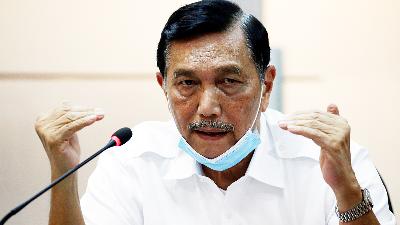
An interview with Coordinating Minister for Maritime Affairs and Investment Luhut Pandjaitan on mining permits for mass organizations and his relationship with Bahlil Lahadalia.
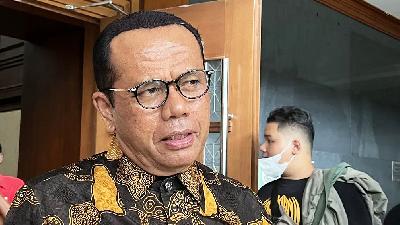
An interview with Juniver Girsang, the lawyer of Fajar Bhakti Lintas Nusantara directors, on the role of the Coordinating Minister for Maritime Affairs and Investment Luhut Pandjaitan in the internal dispute of a nickel company.
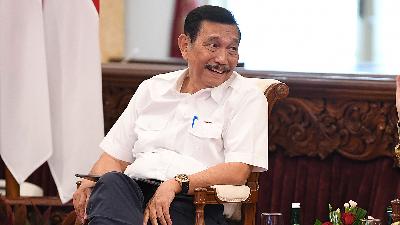
An interview with Coordinating Minister for Maritime and Investment Affairs Luhut Binsar Pandjaitan, who has a role in a dispute at a nickel corporation.
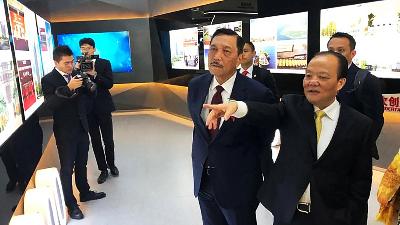
Minister Luhut Pandjaitan is personally mediating a conflict involving a Chinese nickel company. The strife involves reports to the National Police.
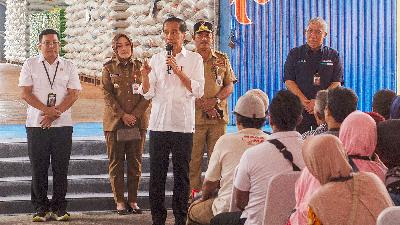
The 2024 State Budget’s automatic adjustment funds are redistributed to social assistance programs and fertilizer subsidy. This policy may be in violation of two laws.

Ario Bimo Nandito Ariotedjo, Minister of Youth and Sports, writes a response to information in the article How Pratikno Became Jokowi’s Political Operator.
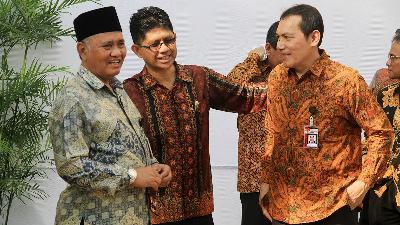
Deputy Chairpersons of the Corruption Eradication Commission for the 2015-2019 period are visibly supporting Agus Rahardjo regarding a meeting allegedly to have taken place at the State Palace. Who is lying?
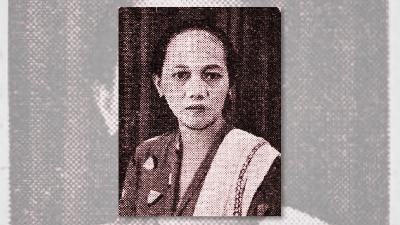
It takes courage to expose what really happened in 1965, including about Gerwani and its leader Umi Sardjono. To this day, people still hate each other based on a concocted history.
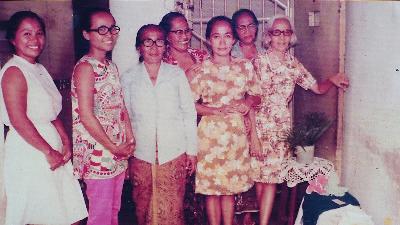
Tempo again presents a special report as an effort to verify the historical claims manufactured by Suharto’s regime surrounding the September 30, 1965 tragedy. This time, we wish to present the life, activism, and ideas of Gerwani Chair, Umi Sardjono.
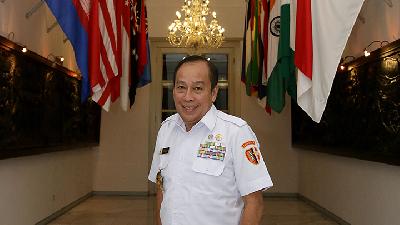
The army’s role in the recent sweeping operation to bring down the banners bearing Islam Defenders’ Front leader Muhammad Rizieq Shihab around Jakarta unsettled Agus Widjojo, governor of National Defense Institute (Lemhannas).
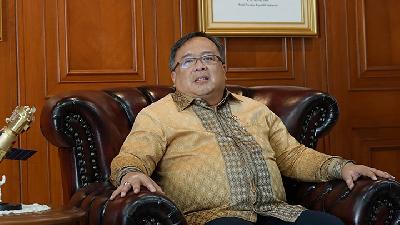
Research and Technology Minister Bambang Brodjonegoro has a new task in hand. As head of the National Research and Innovation Agency (BRIN) he is responsible for down-streaming the results of studies by universities and research institutes.

FOR the third time, the Vatican has chosen an Indonesian archbishop to be Cardinal of the Roman Catholic Church. On October 5, last year, Jakarta Archbishop Monsignor Ignatius Suharyo Hardjoatmodjo was installed by the head of the Holy See Pope Francis as one of the 13 new cardinals or ‘princes’ of the Church.
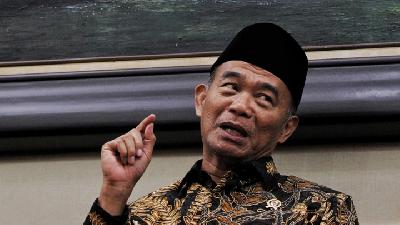
EDUCATION and Culture Minister Muhadjir Effendy saw himself becoming the bane of some parents’ life in the past month.
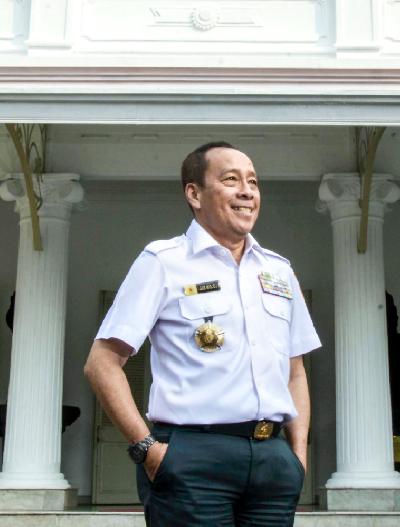
Even at times like these-when the public calls for the revision of the anti-terrorism law to expand the army's role in the fight against terrorism-Agus Widjojo remains nonchalant.
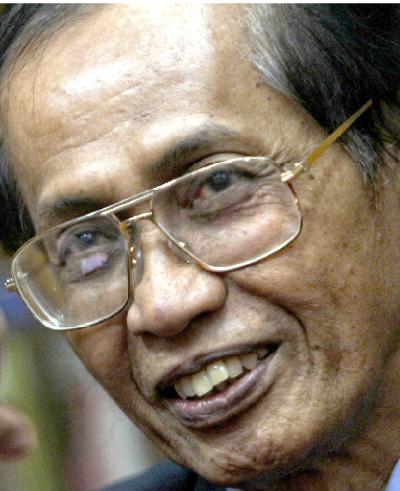
DURING his 18 years in office as a Supreme Court judge, Artidjo Alkostar has handled tens of thousands of cases.

Dewa Budjana gave a sparkling performance at the Jazz Buzz Salihara. Acting laid back, he was accompanied by a string quartet and a vibraphone.

Amir Hamzah emerged as a young intellectual who founded Poedjangga Baroe, the time period’s most influential literary magazine. He promoted the use of Indonesian through poetry and prose.

LESS than a year on the job as minister for villages, development of disadvantaged regions and transmigration, Eko Putro Sandjojo still cannot see how budget spending can prove to be a problem. This year, after nearly one semester, only 16 percent of his ministry's budget has been spent. In the private sector, when you spend money, you have to take cash flow into consideration, but you don't need to do that in the government," he explained to Tempo.

Chairman Agus Rahardjo was riveted by the list of US Navy defense equipment, complete with their budget details. The chairman's laptop was accessing the website of the US Navy Secretariat. "Everything that is secret here is very open over there," said Agus, who started his term leading the Corruption Eradication Commission (KPK) in January 2016, in an interview with Tempo last week.
Agus said open access to the US Navy budget details meant corruption on even the smallest item would be noticed. Likewise, he urged citizens to serve as an extension of the KPK to ensure that not a dime of state money goes to corrupt pockets. "Every Indonesian must take part in monitoring," he said. The day before, he spoke with lawmakers at the House of Representatives (DPR) on ensuring the clean use of the state budget.

Minister of Education and Culture Muhadjir Effendy has proposed 'full-day schools'. Without any prior studies, this idea has only elicited groans.

With the end of Ramadan fast approaching, Bambang Brodjonegoro's busy schedule has just begun. His days are filled with one ministerial meeting after another. He must also keep monitoring two legislative bills currently being discussed by the House of Representatives (DPR) to ensure that they are passed by the end of the month as scheduled. One bill concerns the revised state budget (RAPBN-P) and the other is on the tax amnesty.
The revised state budget will be slashed by Rp90 trillion to account for declining revenues. Another way of addressing the shortfall is through tax amnesty, which is expected to bring additional revenues of up to Rp165 trillion. Bambang sincerely hopes the DPR will enact the two legislations. "The government's program, including the revised state budget, should be backed by the parties claiming to support the government," said Bambang.

In a small visitors room across the swimming pool at his home in South Jakarta, Coordinating Minister for Politics, Legal and Security Luhut Binsar Pandjaitan welcomed the Tempo investigative team last week. He claims not to know Mayfair International Ltd., a shell company in the tax-haven Republic of Seychelles off the shore of East Africa, although his name is listed as its only director.
During the 50-minute interview, Luhut, 68, was accompanied by a number of his staff and senior management of his companies, including the finance director of Toba Sejahtra, Catherine Warouw, and the CEO of Kartanegara Energi Perkasa, Bambang Irawan.

As a close friend of Basuki Tjahaja Purnama long before he became Jakarta governor, Sunny Tanuwidjaja also happens to be quite chummy with a number of tycoons. Last week, he was banned from traveling overseas due to his suspected involvement in a bribery case over the reclamation project in North Jakarta. Basuki treated Sunny as an intern, but Sunny claimed to be one of Basuki's staff. Last week, he was interviewed by Tempo.

BOLD initiatives by Marine Affairs and Fisheries Minister Susi Pudjiastuti to combat illegal fishing have sparked protests. Banning the practice of transshipment at sea and putting a stop to licenses for ex-foreign vessels have upset businessmen and fishermen alike. Vice President Jusuf Kalla said that Susi's measures had left the fishing industry in Ambon and Bitung 'gasping for air'. But Susi retorted, "Cold storage facilities in Bitung had long been empty," when Tempo met her on Monday.

Low tax uptake from the fisheries sector has prompted Marine Affairs and Fisheries Minister Susi Pudjiastuti to launch another bold initiative. The action includes a review of vessel weights and an increase in fishery-production tax rates for bigger ships. The move is meant to make fishing firms' contribution to state coffers proportional to their incomes.
As a result of the policy, several companies have lodged protests with the House of Representatives (DPR). Susi, however, remains unfazed. At the ministerial housing complex in Widya Chandra, South Jakarta, last week, Susi said she would not hesitate to crack down on shady business practices and the players behind them.

IT has been a month since Freeport Indonesia offered its shares, and the government has yet to respond. One of the reasons, according to Finance Minister Bambang Brodjonegoro, is that the government needs to evaluate the nation's overall financial state.
Moreover, the price on offer is no bargain. The company, with its principal based in Phoenix, Arizona, USA, has set the price for 10.64 percent of its shares at US$1.7 billion, or Rp23 trillion. The value, said Executive Vice President of Freeport Indonesia Clementino Lamury, came from an assumption of Freeport's investment after its operational extension in 2021.

Irendra Radjawali, 39, came to a coffee shop in Central Jakarta wearing a blue t-shirt and a pair of khaki shorts. "I'm not a suit-and-tie type of person," said Radja, as he is known by family and friends, apologizing for his informal clothing. He looked energetic despite having flown to Jakarta that morning from Pontianak, West Kalimantan. Radja explained that he had just spent four days in Kalimantan to operate drones used to assist in spatial mapping in the area.
The drones are all designed by Irendra, who currently works as a researcher at Bonn University in Germany. He consulted what he called the best university on earthYouTube videosto learn how to make his own drone three years ago. And this came about after his research work, collecting data from the Kapuas River in West Kalimantan.

Until today, it is fair to say that the government has never given any opportunity nor political recognition to fisherwomen. The bill on the protection and empowerment of fishermen, fish farming and salt mining currently drafted by the House of Representatives (DPR) is an opportunity to accomodate such a need. R. Narmoko Prasmadji said he would try to ensure that the bill contain clauses favoring fisherwomen's empowerment. "There should be legal and economic protection for fisherwomen," said Narmoko. Tempo English contributor Pujani Nadine Kamarwan interviewed him at his office in Jakarta two weeks ago. Excerpts:

There's something different about Bambang Widjojanto, former deputy chairman of the Corruption Eradication Commission (KPK). Arriving to attend the launching of Tempo's 45-year celebration logo last week, where he was a keynote speaker, Bambang was seen to drive a shiny black sedan automobile. What's unusual about this is that Bambang almost never drove a car but always used public transportation to get around town.
Has he changed his lifestyle now that he's no longer in the limelight as head of the anti-graft organization? No, was his answer, that he still rode the commuter trains going to and from work. "After I get to the office, then I may ride in a car, usually not mine," claimed 56-year old Bambang: Once an activist, always an activist.

One needs never be afraid to create new designs and motifs, exhorted Musa Widjatmodjo, 50, at a workshop held as part of the Flobamora Fashion Festival in Kupang, East Nusa Tenggara (NTT), last December. The event was attended by scores of weavers and designers from all over the NTT province. Many wanted to learn how to turn woven cloth into fashion garments.
Musa, a designer known for his eclectic style, noted that the young local designers appeared reluctant to innovate because traditional woven cloth was looked upon as an ancient heritage not to be tampered with. He decided to encourage the local weaverswho were also designersto try their hand at designing new motifs on woven cloth and cutting them into contemporary apparel as a nod to the age-old traditions.

The Corruption Eradication Commission (KPK) has a new captain: Agus Rahardjo. Together with his co-chairpersons-Basaria Panjaitan, Saut Situmorang, Alexander Marwata and Laode Muhammad Syarif-Agus, 59, was sworn in by President Joko Widodo on December 21, 2015, following his selection by the Law Committee of the House of Representatives (DPR). He got 44 votes, while Basaria got 9 votes and Saut one vote.
The new KPK leaders inherited a pile of problems. Prominent among them are the charges against former KPK chairmen Abraham Samad and Bambang Widjojanto and the criminalization of KPK investigator Novel Baswedan. Then there's the internal conflict between the staff and the acting chairman of the KPK, Taufiequrachman Ruki. Agus' burden will be further complicated by the DPR's campaign to revise the law on the KPK, a measure generally regarded as an attempt to weaken the antigraft organization.

About a Woman is the last in a trilogy on character transformation by director Teddy Soeriaatmadja. The Lovely Man, his first film, tells the struggle of an Acehnese woman who wears a veil to find her father, who turns out to be a transvestite in Jakarta. His second film Something in the Way recounts a taxi driver's obsession with a neighbor who happens to be a commercial sex worker. Teddy rounds off his trilogy about intimate matters with the dramatic About a Woman.
In the course of the trilogy, we can also observe the maturing of his directing skills. Teddy now appears more at ease in the simple drama About a Woman. Directors in general have different foci and approaches. Some are centered on the scenario's structure, while the artistic value is obtained through the narrative and the dialog's rhythm. Others depend on their actors to convey the emotions within the storyline. While yet others prioritize the beauty of their visual images and give a strong emphasis to their camera work to create captivating visual renderings.

The name of Luhut Binsar Pandjaitan came up 17 times in a recording that contains the efforts of House of Representatives (DPR) Speaker Setya Novanto and businessman Muhammad Riza Chalid to obtain Freeport Indonesia shares. Unlike Vice President Jusuf Kalla who is seeking legal redress, Luhut allowed the use of his name. "I don't feel maligned. I feel it's just normal," he said. Luhut spoke to Tempo reporters Arif Zulkifli and Sunudyantoro, who met him at his office last Thursday about his involvement in the negotiations with Freeport.

A long drawn out dry season has led to serious cases of drought in many regions of Indonesia. The water levels of major rivers have dropped drastically, fields have baked dry, causing harvest failures everywhere. Severe water shortage has hit both rural areas and townships alike.
This serious problem, according to Mudjiadi, director-general of water resources at the public works and public housing ministry, cannot be managed in a sectoral manner. Technical solutions, such as building water-pipes, reservoirs and dams are not enough. The problem needs an integrated and comprehensive solution.

State-owned company Pertamina's plan to acquire shares of Trans Pacific Petrochemical Indotama (TPPI) is going back and forth. The complexity of the legal problem of this company makes it difficult for this oil and gas company to influence the owner of Tuban Petro. In the middle of this uncertainty, the Medco Group sent its proposal.
But the government does not want to be easily lured. As a former commissioner of Pertamina, concurrently representing the government holding shares in TPPI, Finance Minister Bambang P.S. Brodjonegoro stressed his position. "The government will favor the state-owned company (SOE) to enter," he told Tempo reporters Y. Tomi Aryanto, Gustidha Budiartie and Ayu Prima Sandi, at his office at the directorate-general of taxes on August 19.

Maritime Affairs and Fisheries Minister, Susi Pudjiastuti has earned praise for her resolve in eradicating illegal fishing. However, quite a few business people feel they became victims of her campaign, even though they say they have been law-abiding businesses all this time. They claim the Minister is doing more harm than good, the losses incurred as a result of her campaign reaching up to Rp3 trillion, as she applies the same treatment equally to all concerned parties. At the Tempo office last week, she explained her position, maintaining that everything her ministry implemented was according to existing laws and regulations.
What is the reason for extending the moratorium on foreign fishing vessels to another six months?

Since Susi Pudjiastuti was appointed Maritime Affairs and Fisheries minister four months ago, her mission has been quite simple, and that is increase domestic fish production. But she also wants Indonesian fish exports to increase in the world market.
According to Susi, all that can be achieved by eliminating fish theft, which for years had been carried out by other countries operating on Indonesian waters.

THE police arrested him after he dropped his daughter off at the Nurul Fikri Elementary School in Depok, West Java, three weeks ago. He was handcuffed and asked to get into a police car, and driven to the National Police Headquarters in Kebayoran Baru, South Jakarta.
Since the Corruption Eradication Commission's (KPK) indictment of Police Comr. Gen. Budi Gunawan, Bambang Widjojanto knew he and other KPK leaders would be targeted. It was not long before he was proven right. He was charged with urging a witness to commit perjury during a trial over the contested results of local elections at West Kotawaringin, an area in Central Kalimantan, back in 2010.

It has been 30 years since Sudradjat 'fell in love' with coconuts. The thesis and dissertation of this lecturer of Agronomy and Horiculture at the Bogor Institute of Agriculture (IPB) were all about coconuts. He claimed to have been attracted to the philosophy of the cocounut tree-also known as 'the tree of life'. The coconut can grow anywhere and it has become, "the symbol of beauty in the tropics," said Sudradjat.

THE website www.jariungu.com was once so inundated by visitors that it crashed, became paralyzed just before the legislative elections last April. People visit the site to get information on the legislators who will be running for office. "The volume of visitors shows that many are still confused," said Teuku Radja Sjahnan, 46, founder of the website.
Radja, a former auditor of the Supreme Audit Agency (BPK), funded as well as became a programmer to manage the website. He received no financial profit from his activities because he considered it his social responsibility to the community. "So people won't choose the wrong person to represent them," Radja told Tempo last month.

Fighting corruption is nothing new in Indonesia. But the battle fought by people in rural areas may be something that is little known by the general public. According to Zainal Arifin Mochtar, Director of the Center for Anti-Corruption Studies at Gadjah Mada University, efforts by villagers to fight corruption have to be considered significant, because so far, awareness about fighting it is mostly present amongst the middle classes in urban centers.
Urban communities are generally better informed and they are abetted by the many anti-corruption activists in towns. But when anti-corruption figures in the country's remote areas begin to emerge, it is a most important development.

IN a small and cozy dining room of a house at the Widya Chandra ministers' residential complex in South Jakarta, Bambang Brodjonegoro dispelled the stereotype of a finance minister: cold, terse and super-cautious, when talking to members of the media. At a dinner with national media chief editors, Bambang spoke in a relaxed manner about his new position. "The Finance Ministry must actively push for a maritime vision and tariff harmonization," he said.
Bambang spiced his talk with anecdotes of football, a game he is a fan of. "I want the ministry not just to be a stopper, it must also be a libero (a soccer term for the sweeper position)," he said, to the laughter of everyone present. Bambang's analogy of his responsibilities should be taken seriously. He seems to genuinely want his ministry to go beyond oversight duties. He is determined to push his bureaucrats to be more active, productive and strive for breakthroughs, not business as usual. This includes smoother relations with bureaucrats from the other ministries.

With two months before the government of President Susilo Bambang Yudhoyono comes to an end, Minister for State-Owned Enterprises, Dahlan Iskan announced changes in the senior management of the State Electricity Company (PLN). He replaced PLN CEO, Nur Pamudji with Ignasius Jonan, the current CEO of the State Railways Company (KAI). Yet the president had asked his ministers not to implement any strategic policies pending the completion of his second term, including the replacement of state-owned senior managers.
Not surprisingly, Dahlan's measure has raised some questions. Is it true the management change was because Nur Pamudi refused Dahlan's request to clean up investment problems in PLN Batubara (a coal-based PLN subsidiary)? On two separate occasions, Dahlan responded to questions posed by Tempo reporters Gustidha Budhiartie and Bernadette Christina last week.

During the final rounds of the campaign, Joko Widodo-Jusuf Kalla's campaign team has had its hands full trying to fight off the serious smear campaign launched by the opposing side. They tried to reinforce the support in areas like West, Central and East Java. Despite the various propaganda, campaigner Andi Widjajanto said he was optimistic the Jokowi-Kalla ticket, endorsed by the Indonesian Democratic Party of Struggle (PDI-P), the National Awakening Party (PKB), the National Democrat (NasDem) Party and the Justice and Unity Party (PKP), will win the election next Wednesday. He spoke to Tempo reporter Kartika Chandra on the tactics being used during the campaign. Excerpts of the interview:
How damaging has the semar campaign been on Jokowi?
It's been significant. The slanders forced us to spend more attention and energy to anticipate them, like forming a special team to track them down. There were no less than 28 lies or rumors systematically disseminated to bring down Jokowi, and which we had to manage, one by one. That took a lot of our time. And we lost a lot of voters, particularly among the undecided.
What kind of attacks?

The exhibition S. Sudjojono: Art, Life, and Legacy, which was held at the Pakarti Building of the Center for Strategic and International Studies in Jakarta on December 12-22, featured a nude painting by Sudjojono, which collectors have quietly been talking about.
The painting in question is Tempat Mandi di Pinggir Laut ("Bathing Spot by the Sea"). It strongly resembles another one of Sudjojono's paintings titled Dunia tanpa Pria ("World Without Men"). Both paintings portray over a dozen nude women relaxing outdoors behind large stones at the edge of a water pool . The difference is, one woman in Tempat Mandi di Pinggir Laut is wearing transparent brocade, while in the other she is uncovered.
So far these 'twin' paintings have never been publicly discussed. A book launched during the exhibition made no discussion of it either. More's the pity, the painting Dunia tanpa Pria was not present in the exhibition. Did Sudjojono make both the paintings? Or is there a possibility that one of them is a fake? What is the opinion of Putra Masagung, who owns Dunia tanpa Pria? Here is Tempo's analysis.

The Supreme Court granted the appeal for a review of the case of Sudjiono Timan, who was convicted of corruption, but who is a fugitive. A dangerous jurisprudence precedent.

The trial of Djoko Susilo is underway. Presenting the burden of proof on the former police general, is the key to confiscating his assets.

Dozens of prosecutors from Jakarta and Bandung attempted to execute a court ruling on Comr. Gen. (ret) Susno Duadji. Under the protection of the West Java Police chief, he has managed to elude his captors.

In heading a company laden with problems, Nur Pamudji opted to sweep it clean of corruption first, so that efficiency can be improved and the PLN can be free of intervention.

All Ade Pudjiati wanted to do was help street children get the education they deserve. Despite bureaucratic foils, she fought on and won some battles. A portrait of an activist by Kendisan Kusumaatmadja.

The Supreme Audit Agency concluded the results of the audit on the examination and investigation process of six tax cases. The Tax Directorate General is considered to have broken the law. Ammunition to oust its director-general Tjiptardjo?

The Taxation Working Committee requested Tax Director-General Mochamad Tjiptardjo’s resignation. It could result in several big tax cases being halted.

Because the case has expired, the Attorney General says he cannot continue the investigation into the “Balongan refinery case.” This means that Ginandjar Kartasasmita has escaped the clutches of the law over the corruption at the refinery construction project. The former Mining Minister had been accused of sharing responsibility for the project that resulted in the state losing US$200 billion. The case expired because the request from the AGO to Indonesian Military HQ to set up a legal interconnection team and question officers involved in legal cases was ignored. This saved Ginandjar.

Bulog CEO Widjanarko Puspoyo is a corruption suspect in the procurement of imported cattle. The Prosecutor’s Office also incriminates him in other cases.

Djadja Suparman is suspected of involvement in the disputed assets of the Brawijaya Regional Military Command.

A team of experts from the AGO have declared Ginandjar and Suharto suspects in a technical assistance contract case.

The AGO has reopened investigation of the controversial Pertamina corruption case involving former Minister of Mining, Ginandjar Kartasasmita.

Probosutedjo was sentenced to four years jail for misappropriating reforestation fund. But the case of Prajogo Pangestu remains at a standstill.

Both Golkar and the House of Representatives find it hard to remove Akbar Tandjung. Is his lobbying still so strong?

The court has acquitted defendant Sudjiono from all charges of corruption. Understandably, the prosecution is appealing the decision.

A decade ago, William Soeryadjaya lost everything. One rainy night, a number of his fellow businessmen gave him a letter: a request that he sell his empire, the Astra International automobile factory, to save Bank Summa, then close to going under. He was cornered. Rejecting meant letting his son's "baby" drown, but accepting would be tantamount to willingly abandoning one's own child. That's why, perhaps, the letter was like a thunderclap. "As if blind and deaf, I just signed that letter," William said. When Astra sales could not save Summa, Wiliam knew a terrible force had arranged for his fall. He believed Summa's bankruptcy was only an interim target paving the way for the seizure of Astra from his hands. This untold story of the fall of a business dynasty in Indonesia was kept buried for a decade although a book on the history of Astra and William was published last June.

The Attorney General's Office has reopened its case files on Ginandjar Kartasasmita.

When he was still trade minister, Prof. Dr. Satrio Budihardjo Joedono used to hold up his battered old briefcase. According to Satrio, better known to his friends as Billy, he bought the briefcase at the Ancol art market in the 1980s. Now the 61-year-old Pangkalpinang native has served for almost two years as chairman of the Supreme Audit Agency (BPK), the battered old bag—repaired several times—is still his faithful companion. "I've already had to bring it to Laba-Laba (a bag repair store) a couple of times," he says.

A smiling Prijadi Praptosuhardjo greeted TEMPO at his South Jakarta home last Thursday. Two days after his dismissal as minister of finance, the 61-year-old from Klaten in Central Java wasn't showing the scars of political battle. This was in sharp contrast to when the announcement was made. The former director of corporate credit at Bank Rakyat Indonesia (BRI) was holding a meeting with the House of Representatives' (DPR) Budget Committee. The discussion on budget revisions—which was nearing completion—had to be suspended immediately because, "I can no longer concentrate on this issue," he told the participants with an air of dejection.

A smiling Prijadi Praptosuhardjo greeted TEMPO at his South Jakarta home last Thursday. Two days after his dismissal as minister of finance, the 61-year-old from Klaten in Central Java wasn't showing the scars of political battle. This was in sharp contrast to when the announcement was made. The former director of corporate credit at Bank Rakyat Indonesia (BRI) was holding a meeting with the House of Representatives' (DPR) Budget Committee. The discussion on budget revisions—which was nearing completion—had to be suspended immediately because, "I can no longer concentrate on this issue," he told the participants with an air of dejection.

He may be out of his cell, but the troubles of once powerful Ginandjar are not over. The attorney general, his rival for the heart of the Golkar party, is still lurking ominously.

Twice he bettered the attorney general before his trial even opened. Despite accusations of corruption, controversial former mining and energy minister Ginandjar Kartasasmita is a free man once more.

In the eyes of TEMPO’s respondents, Ginandjar Kartasasmita has two faces: he is a New Order official whose guilt is hard to prove and a political victim.

Former minister Ginandjar Kartasasmita is officially under detention for alleged corruption. But his former master, the military, is still keeping close watch over its boy.

Following are excerpts from the testimony of Indonesia’s former police chief General Rusdihardjo. It was made on November 28 to a special House of Representatives (DPR) committee on the scandal known as Buloggate and on a controversial donation from the Sultan of Brunei. This testimony was obtained from TEMPO’s investigation and information from legislators. This is what Rusdihardjo told them.

For the third time, former Minister of Mines & Energy Ida Bagus Sudjana has won his defamation case.
Independent journalism needs public support. By subscribing to Tempo, you will contribute to our ongoing efforts to produce accurate, in-depth and reliable information. We believe that you and everyone else can make all the right decisions if you receive correct and complete information. For this reason, since its establishment on March 6, 1971, Tempo has been and will always be committed to hard-hitting investigative journalism. For the public and the Republic.